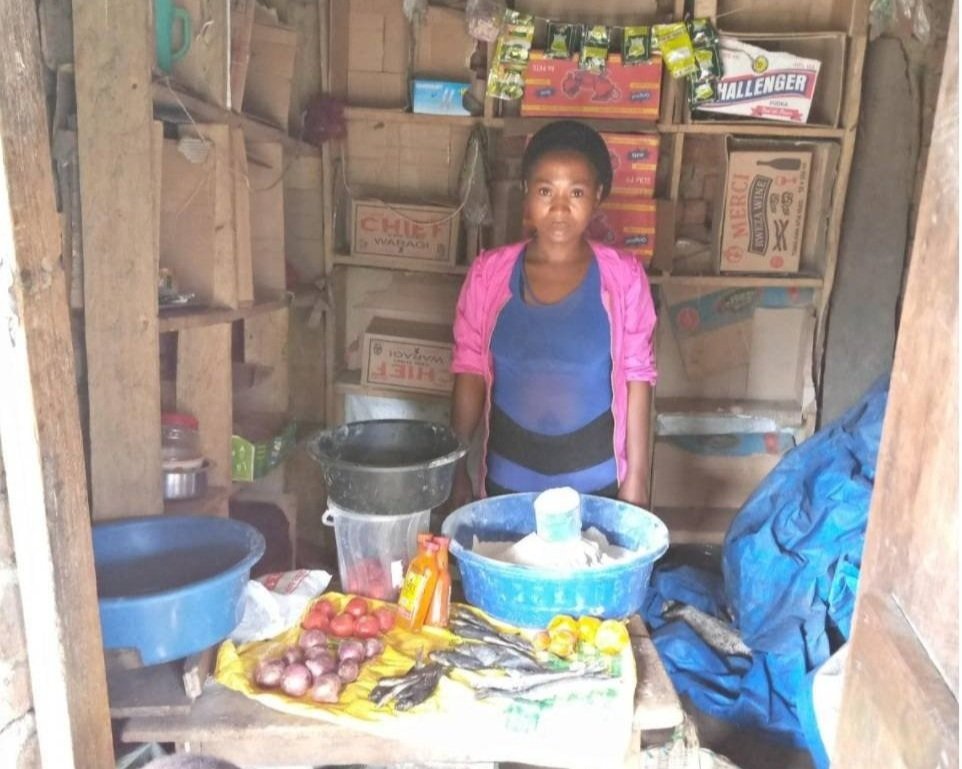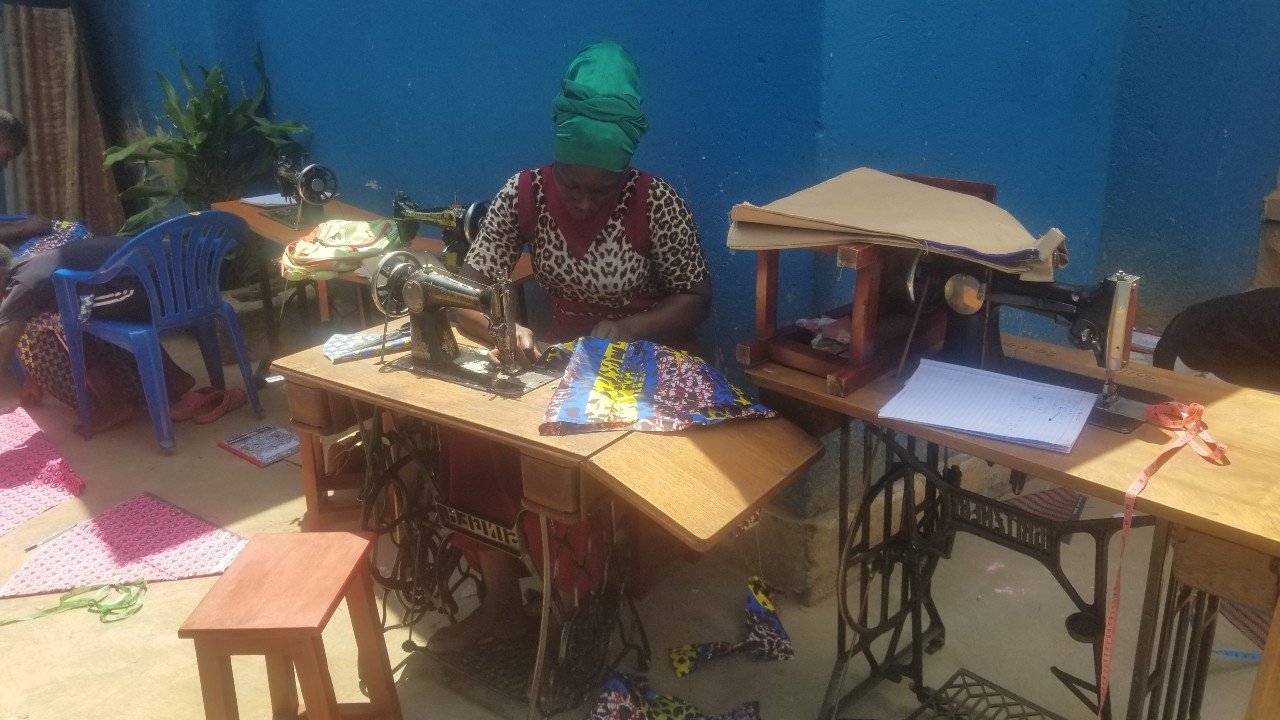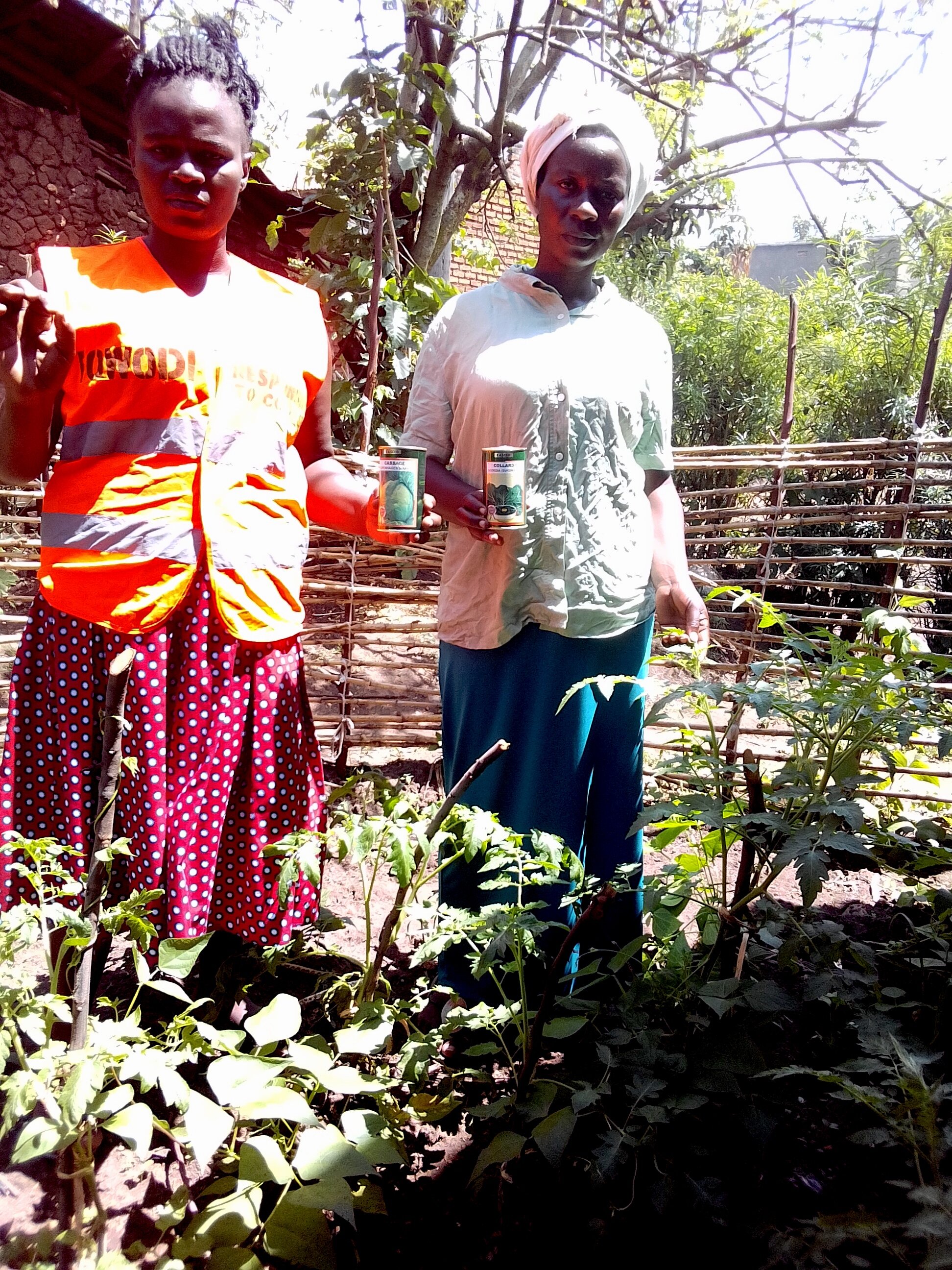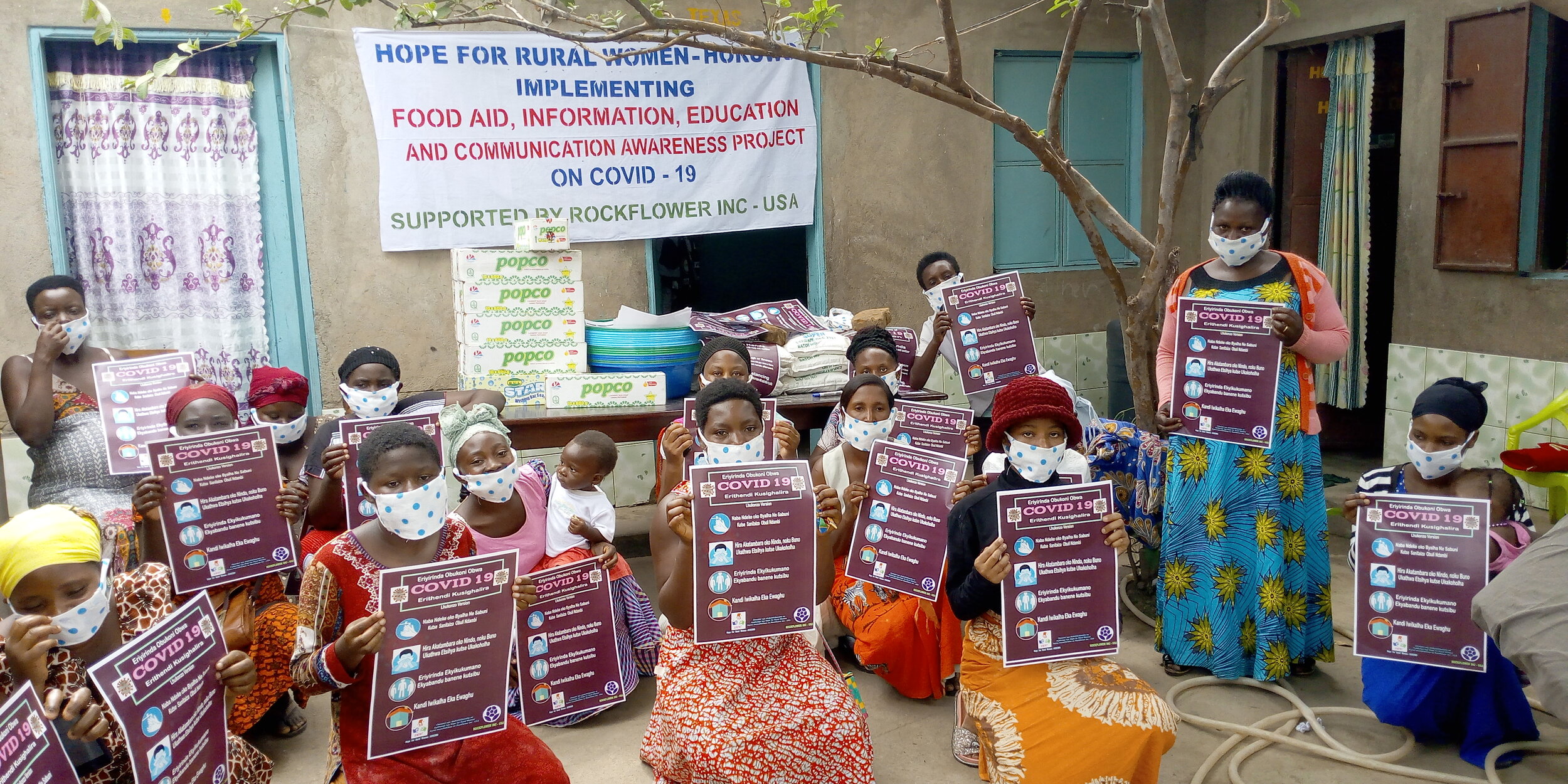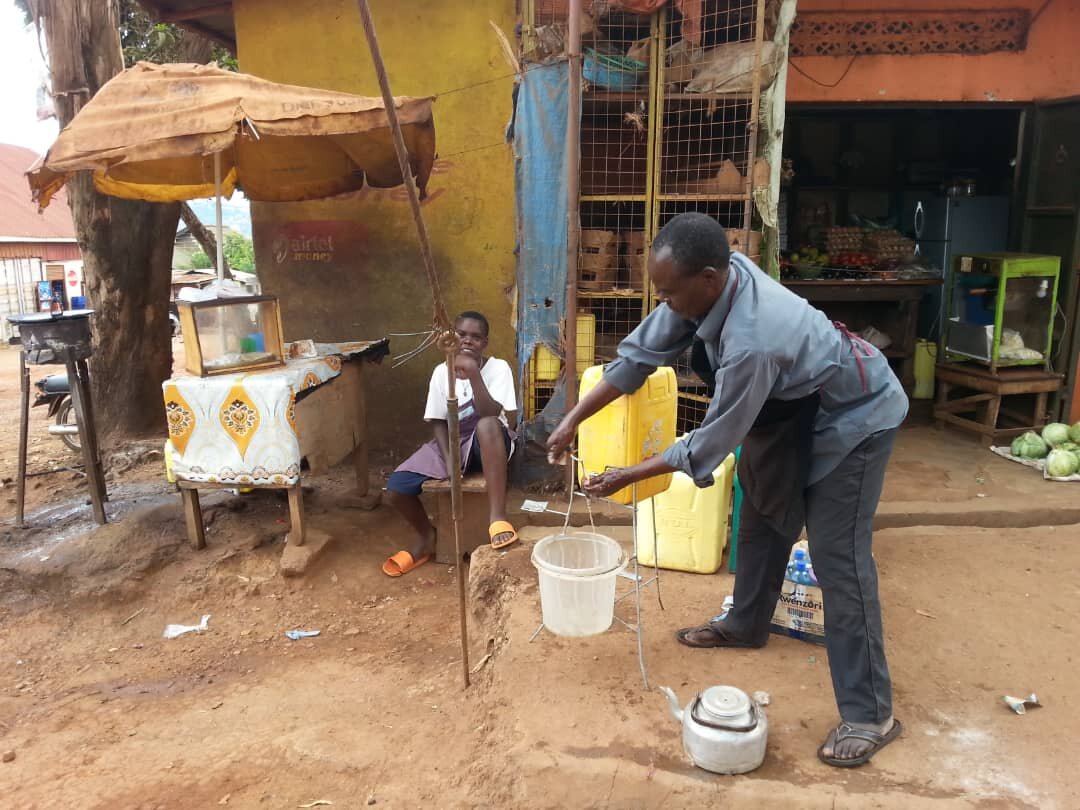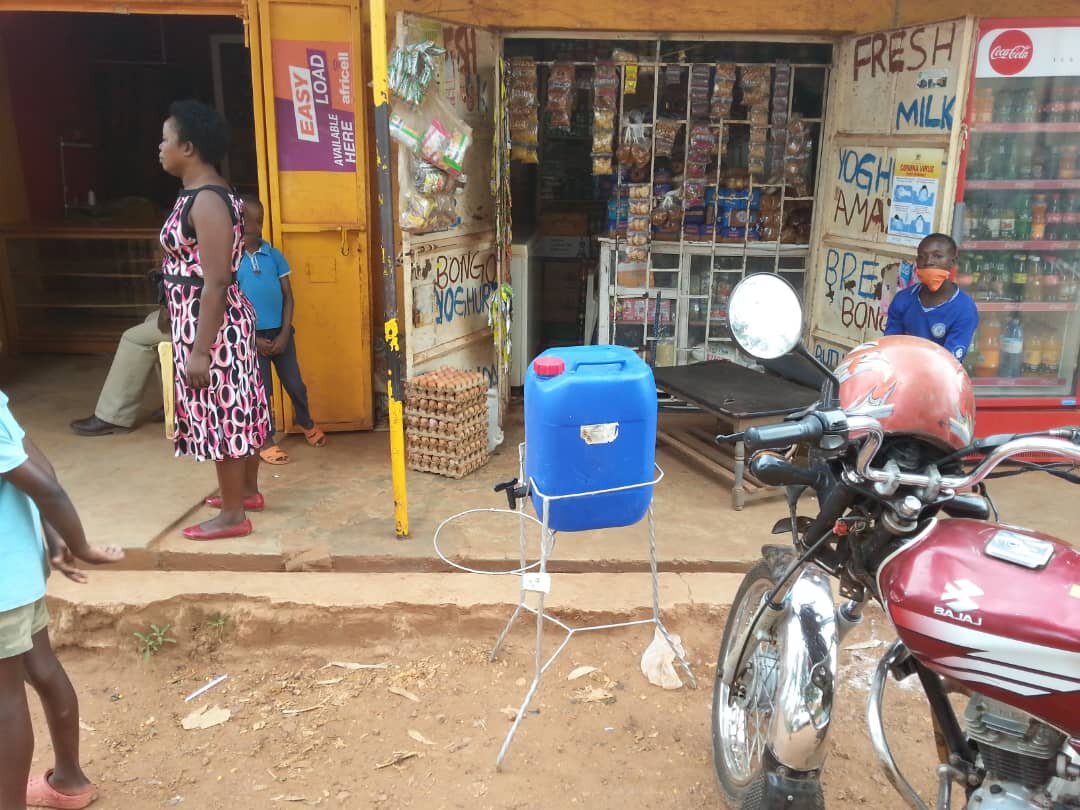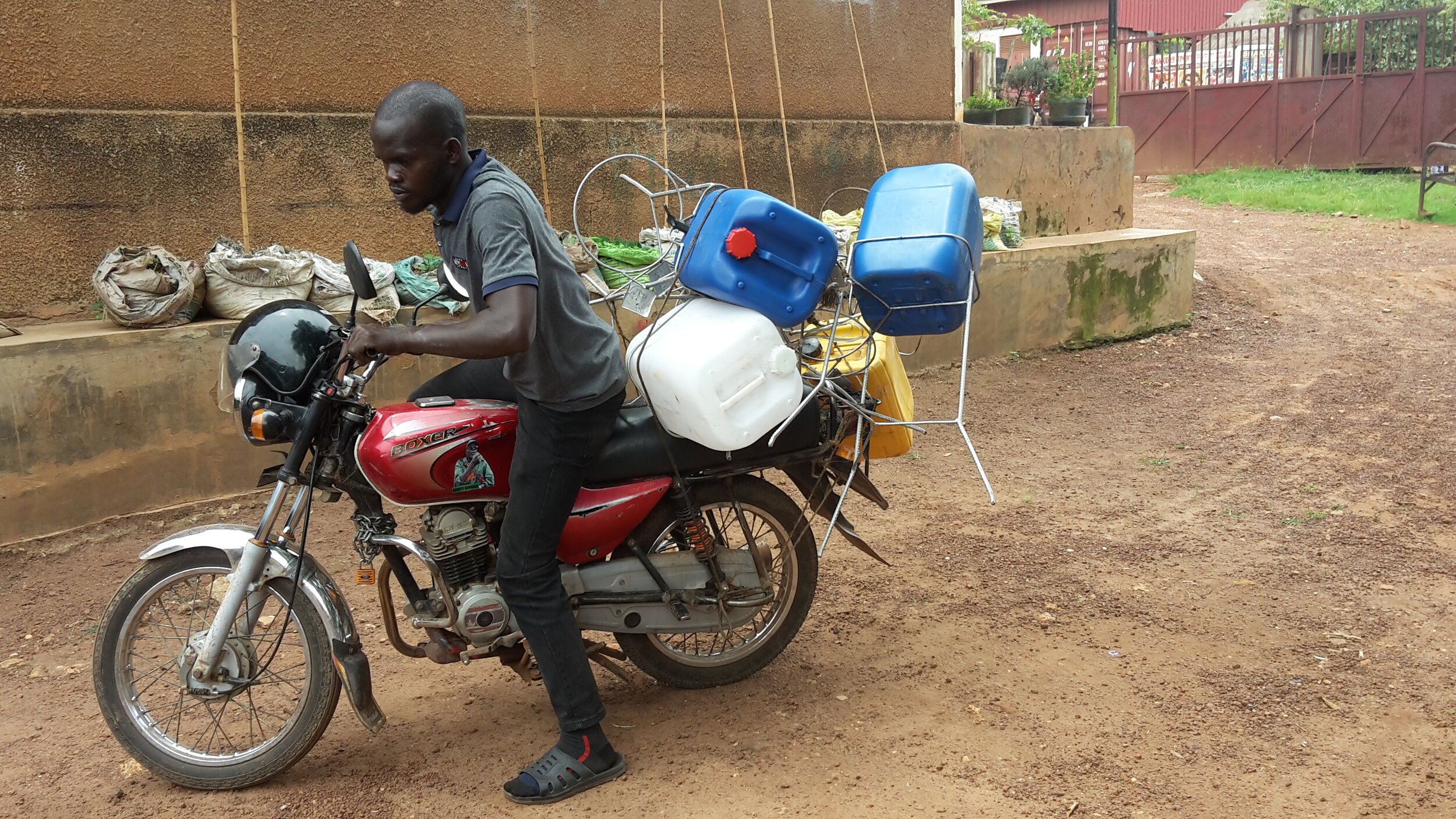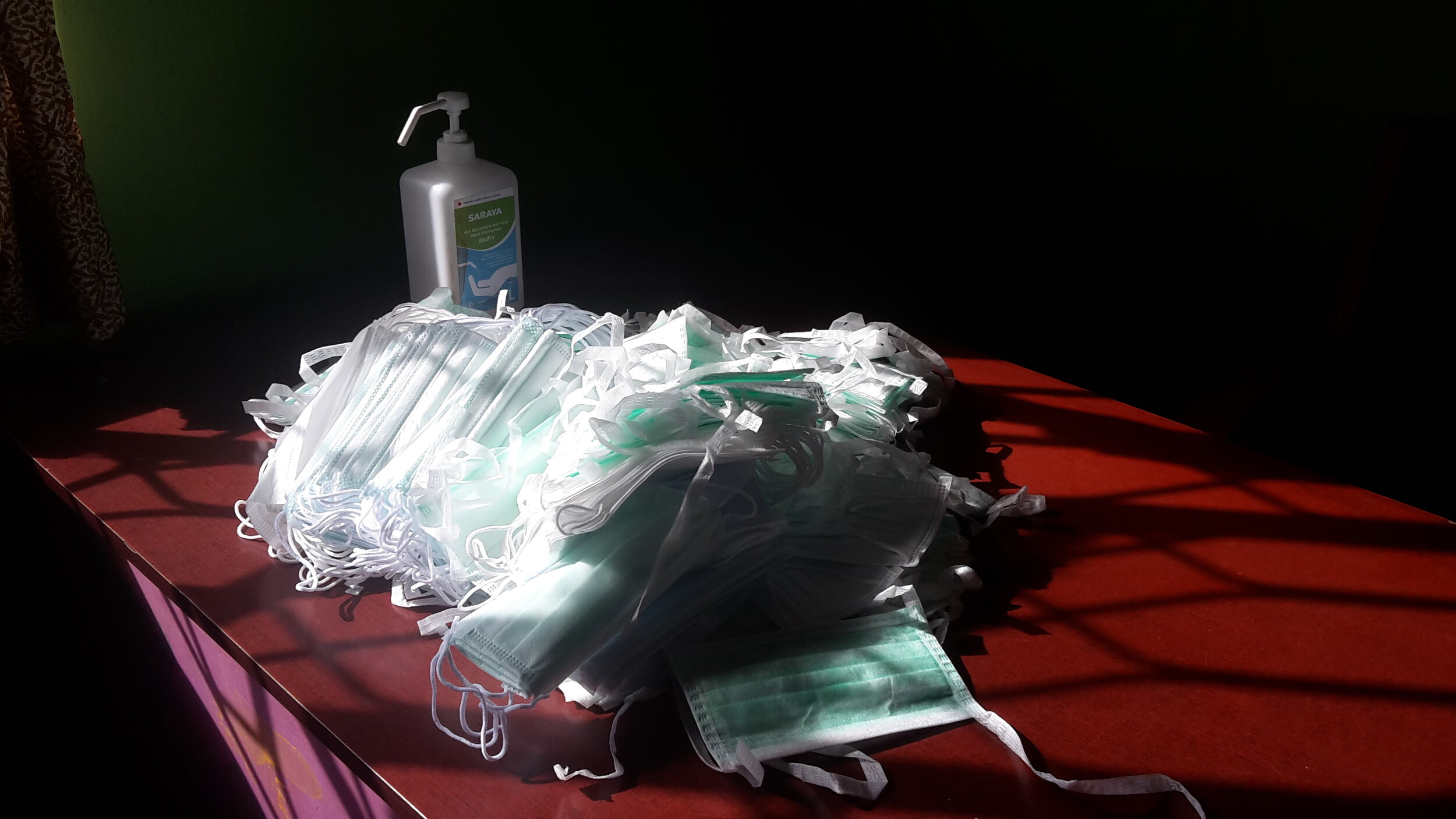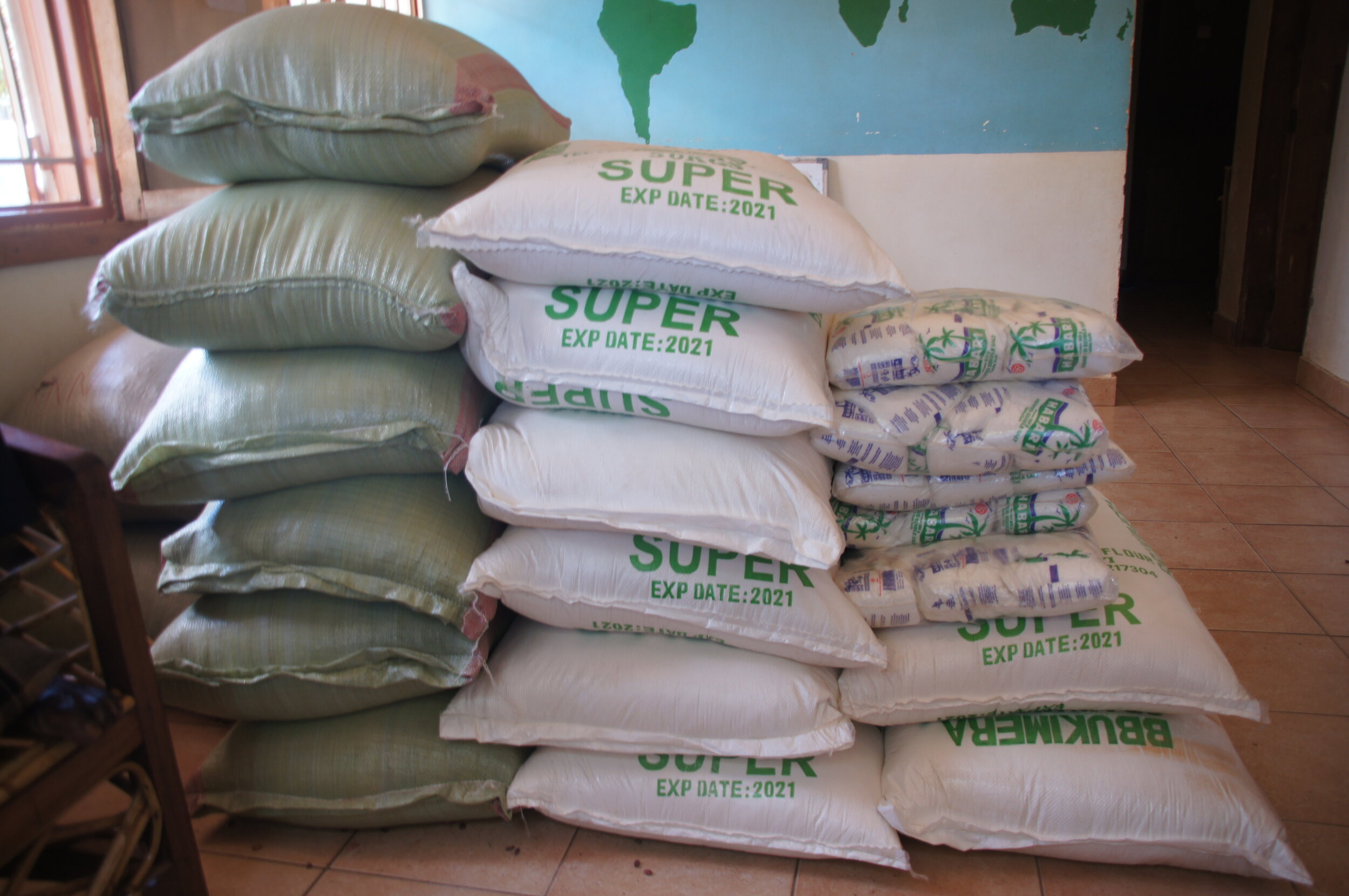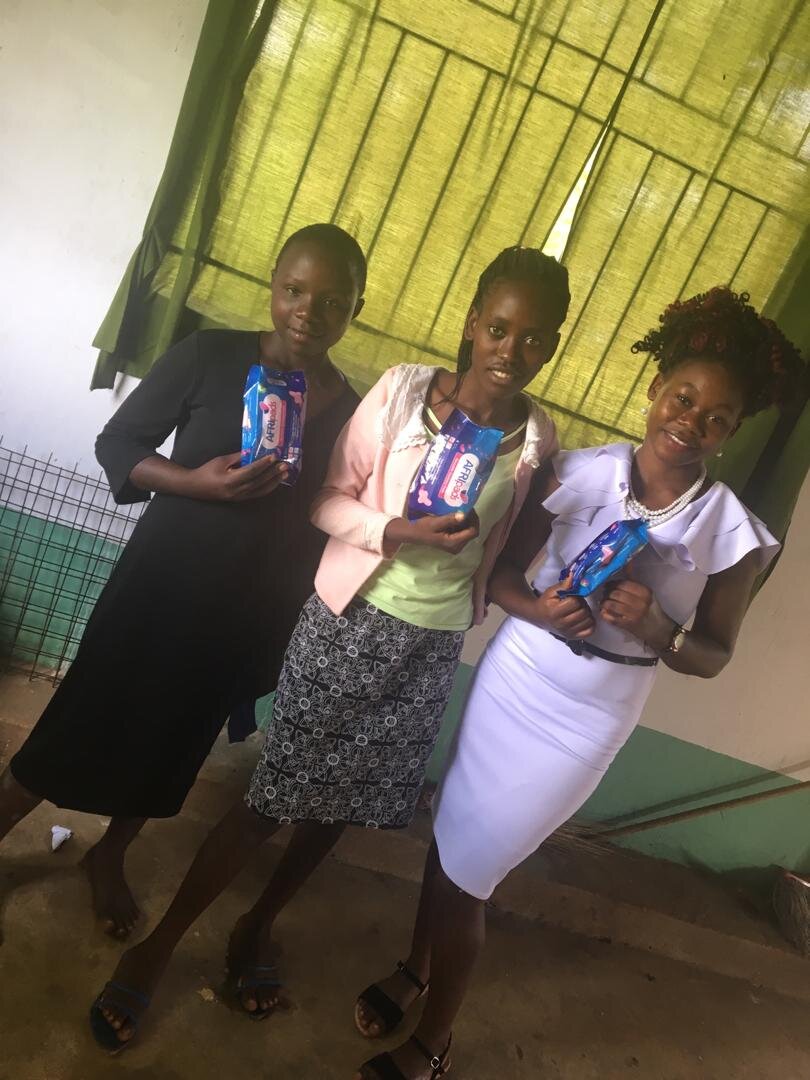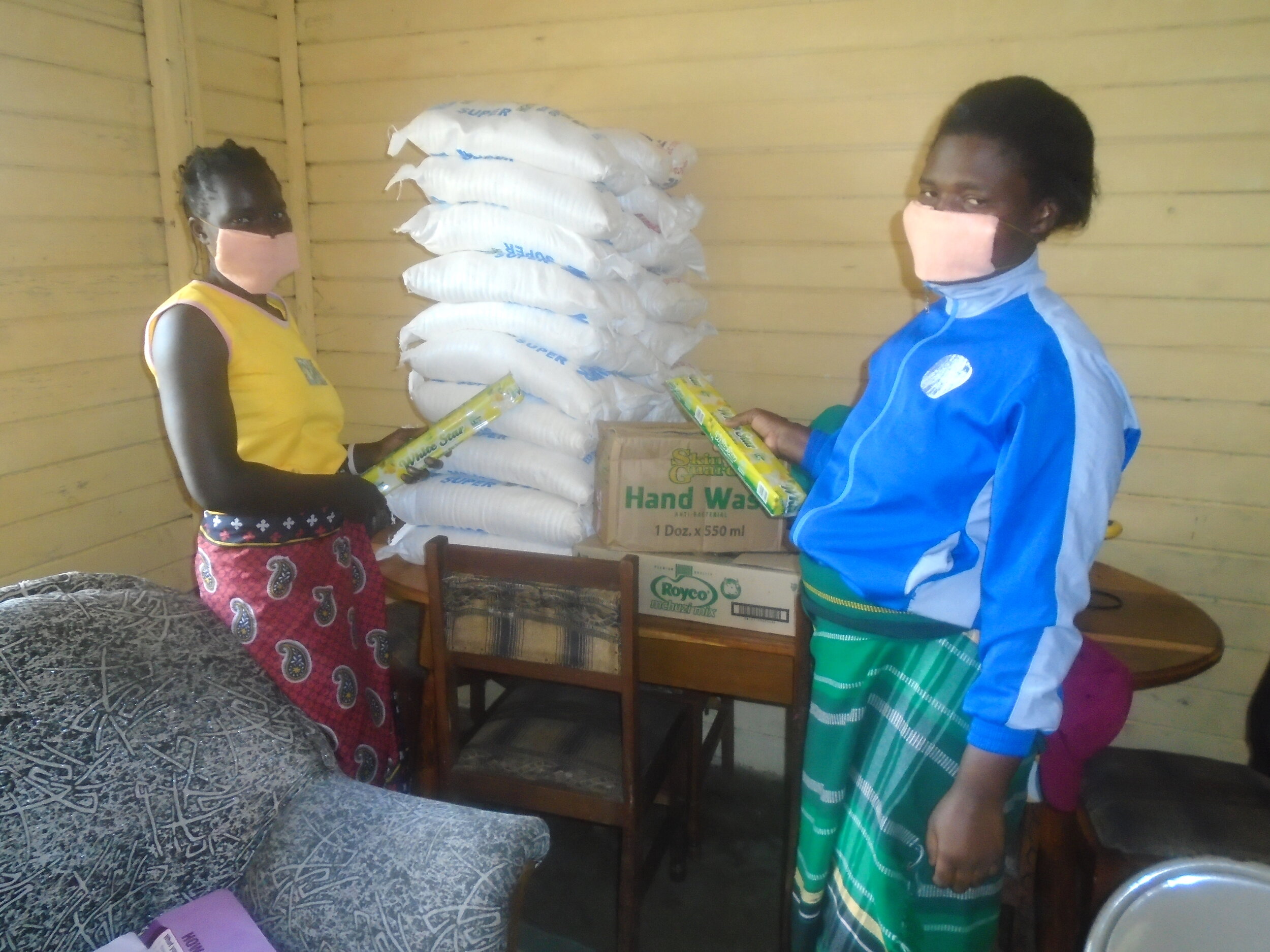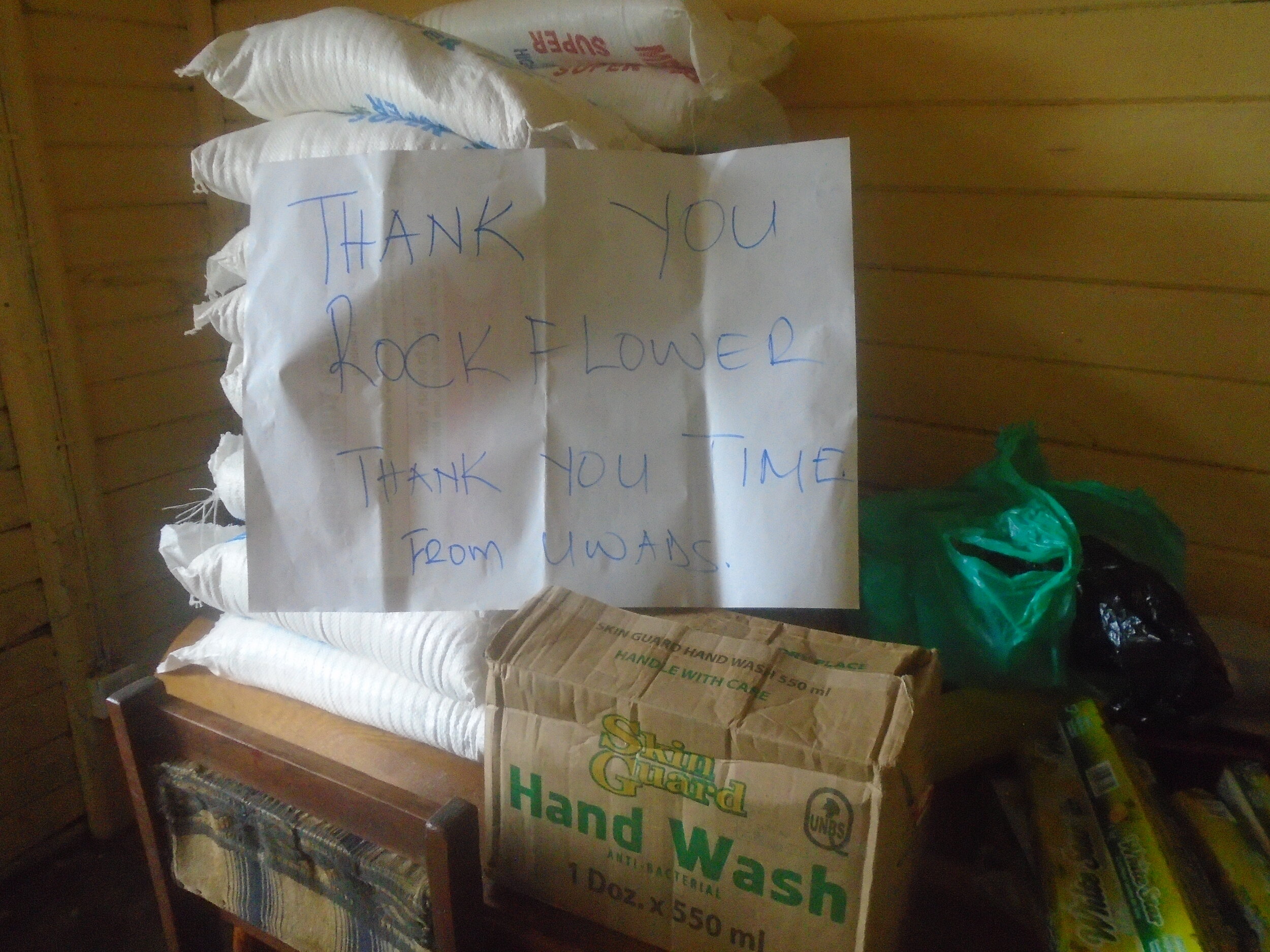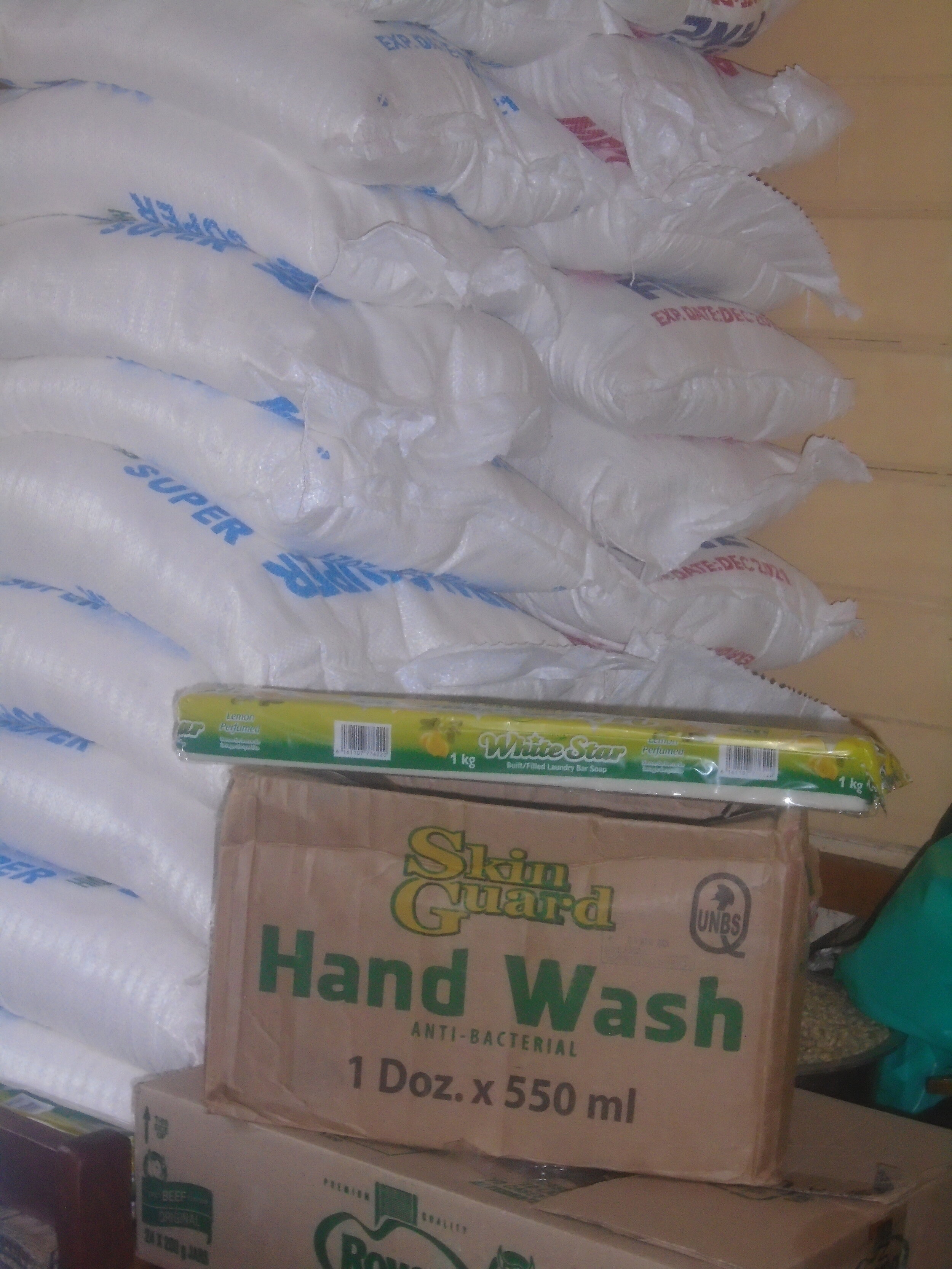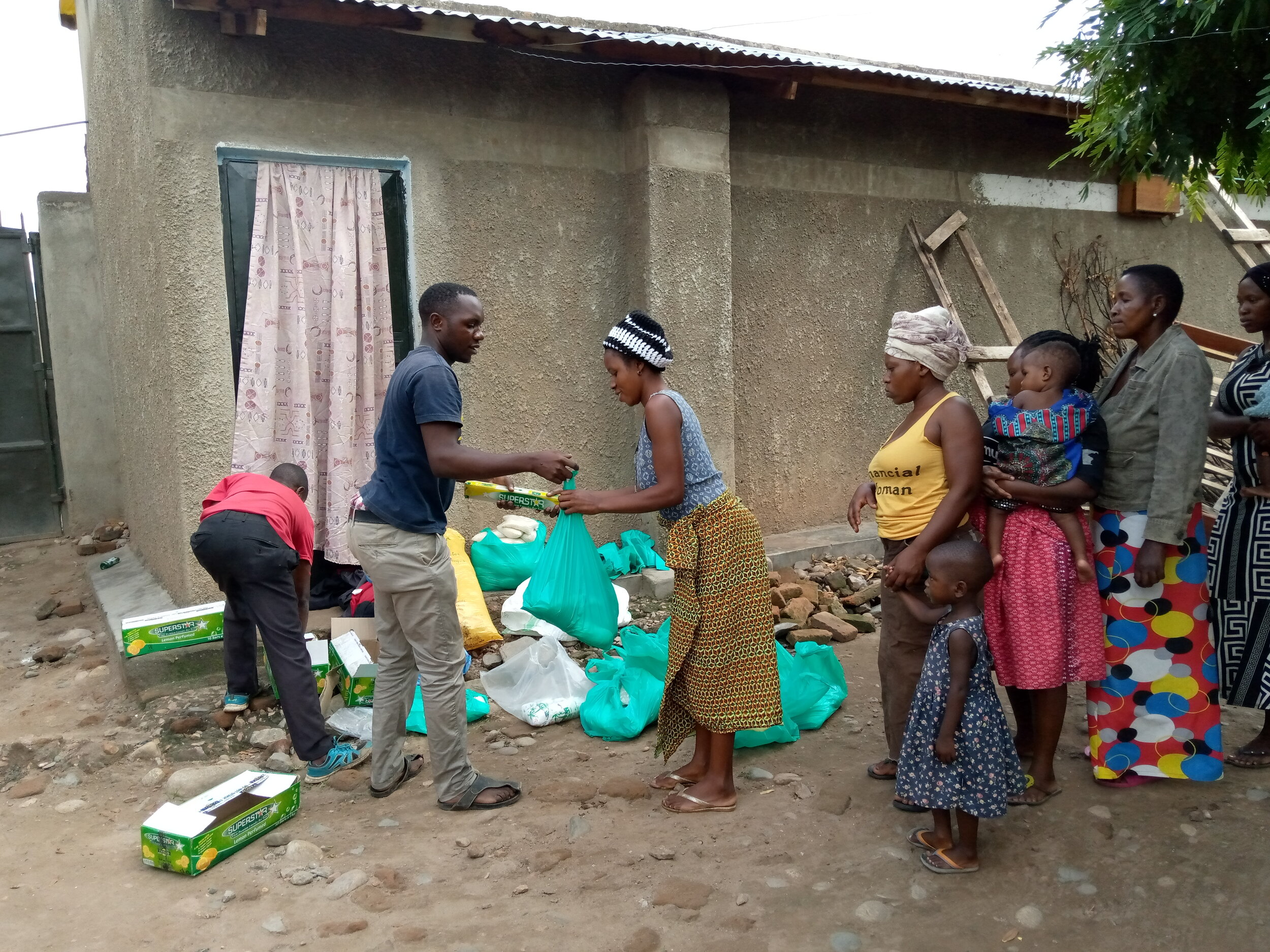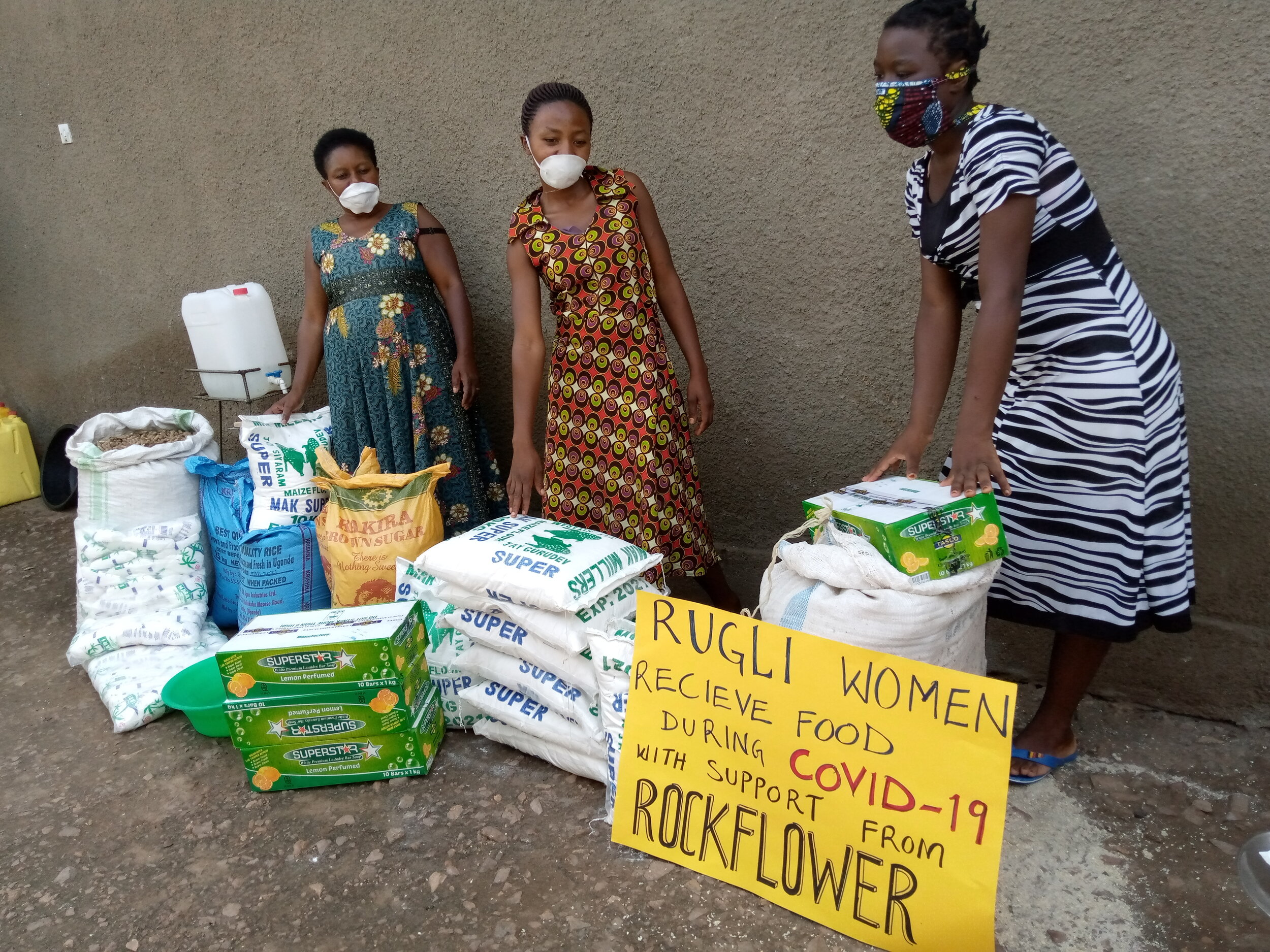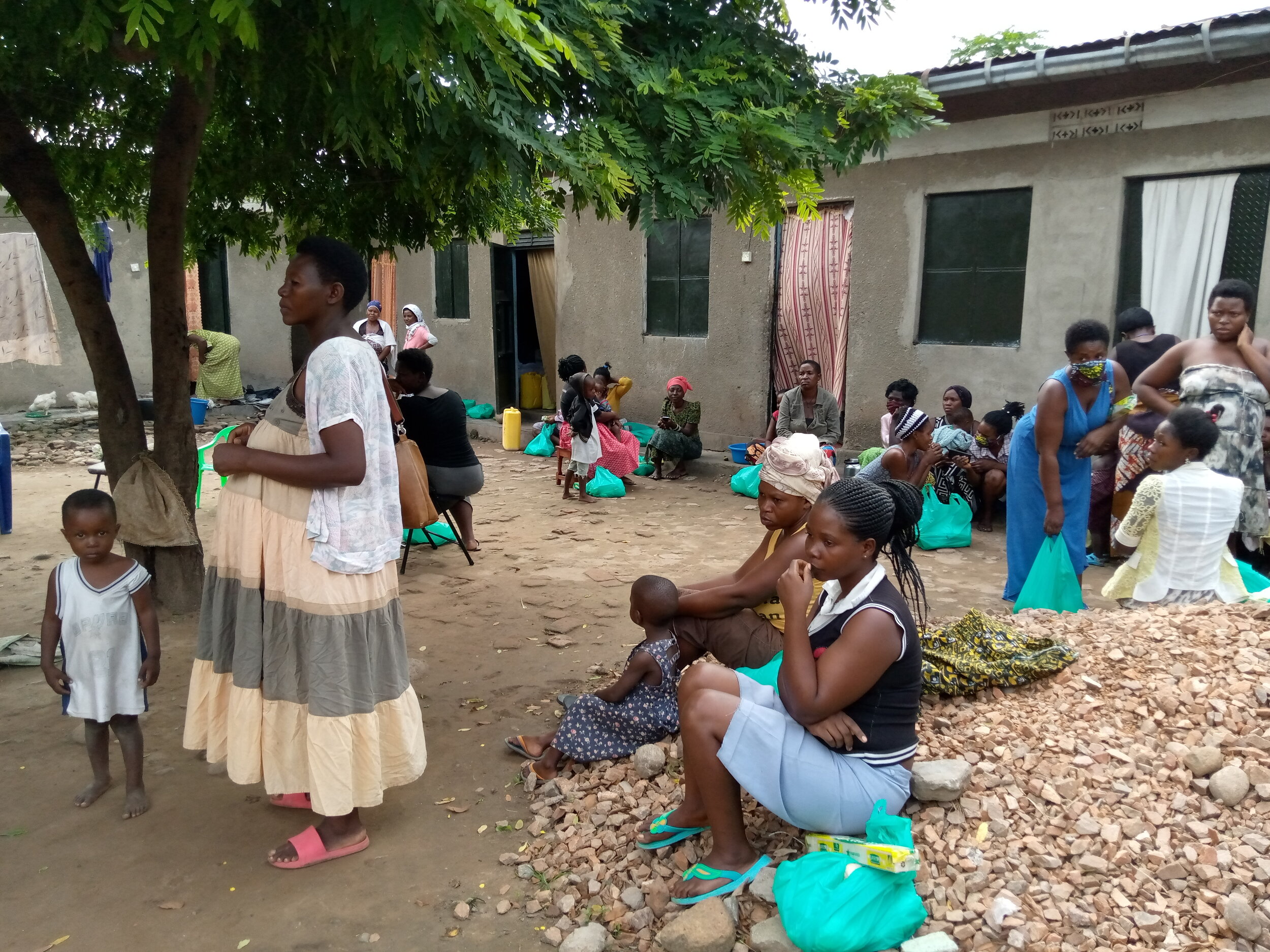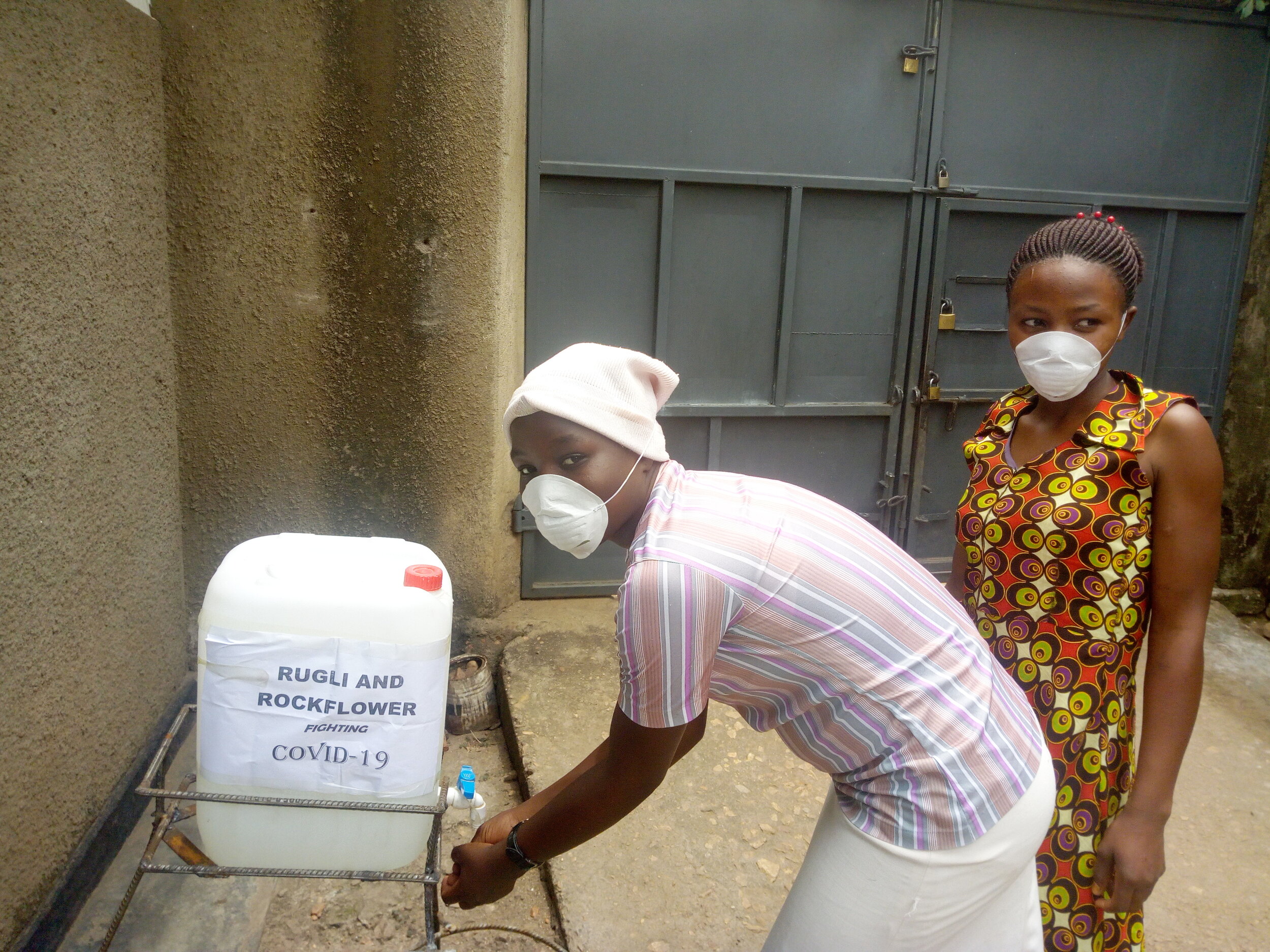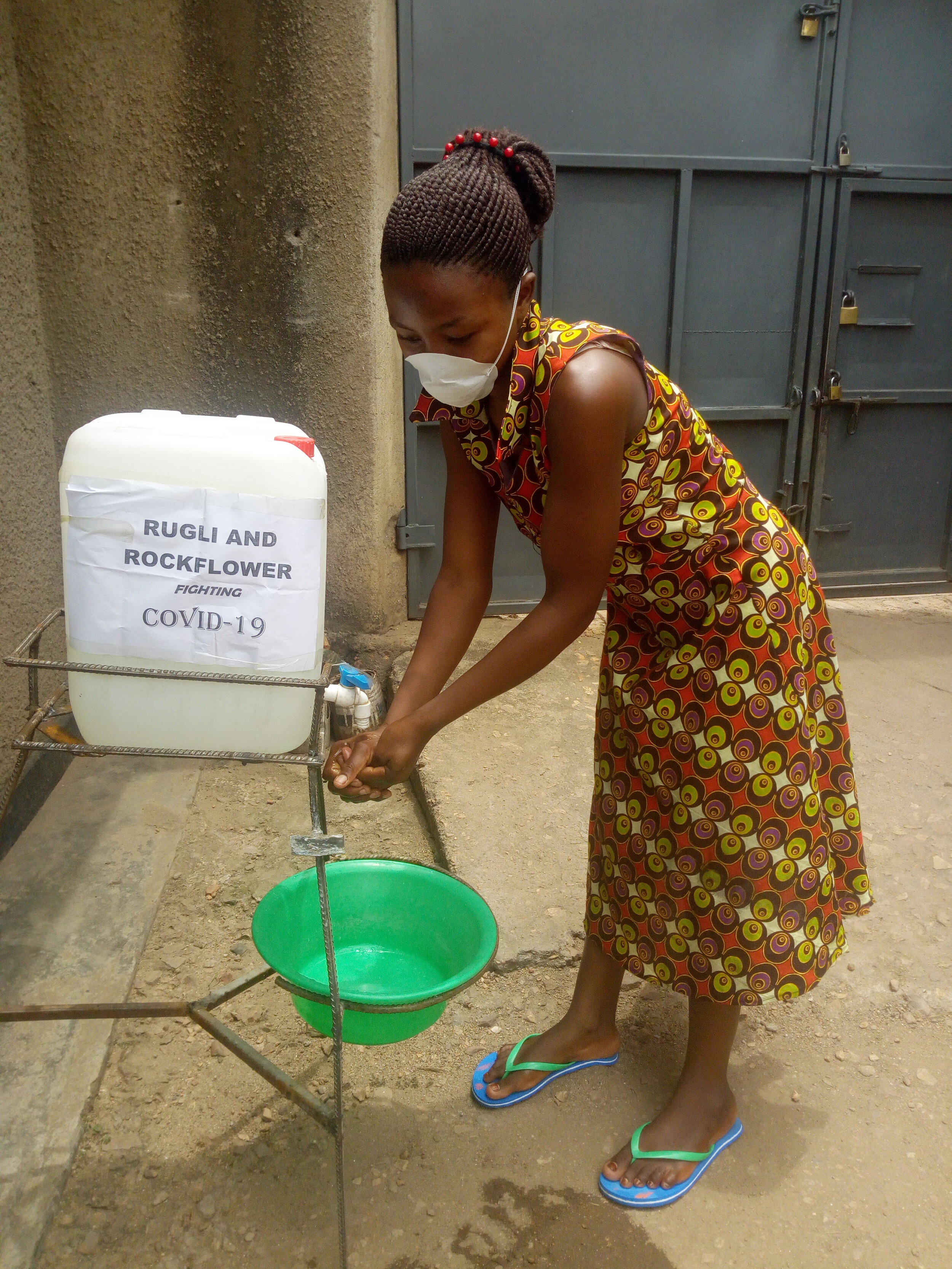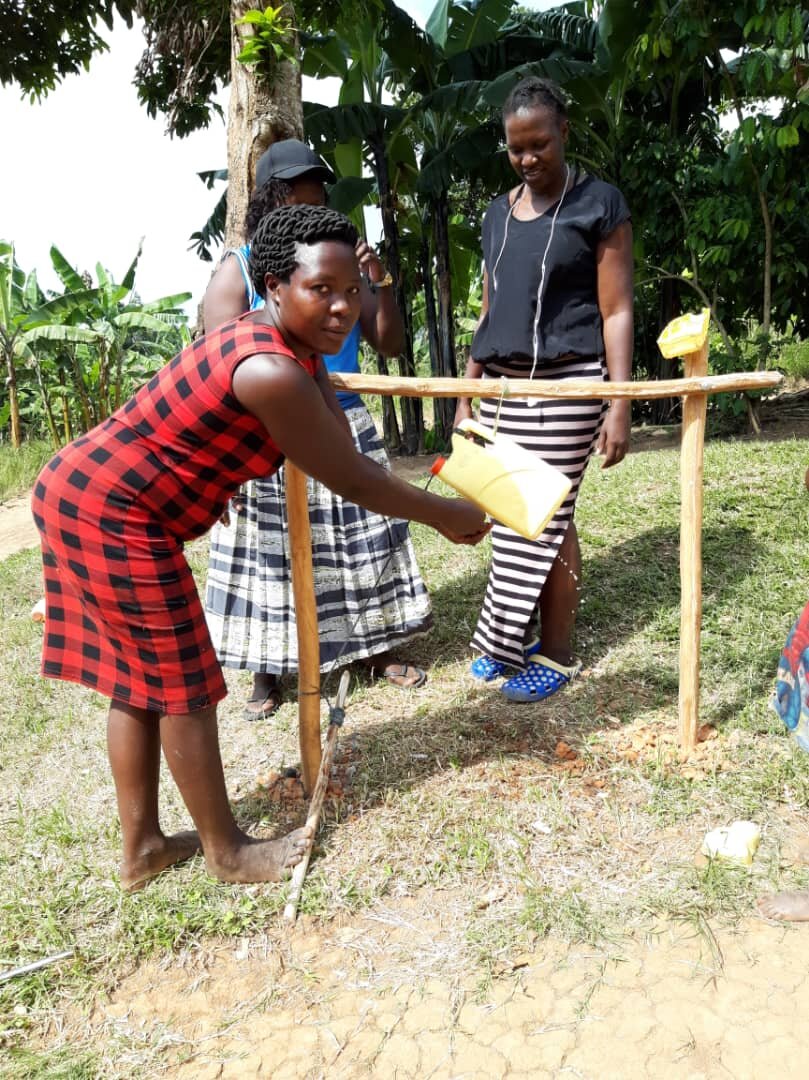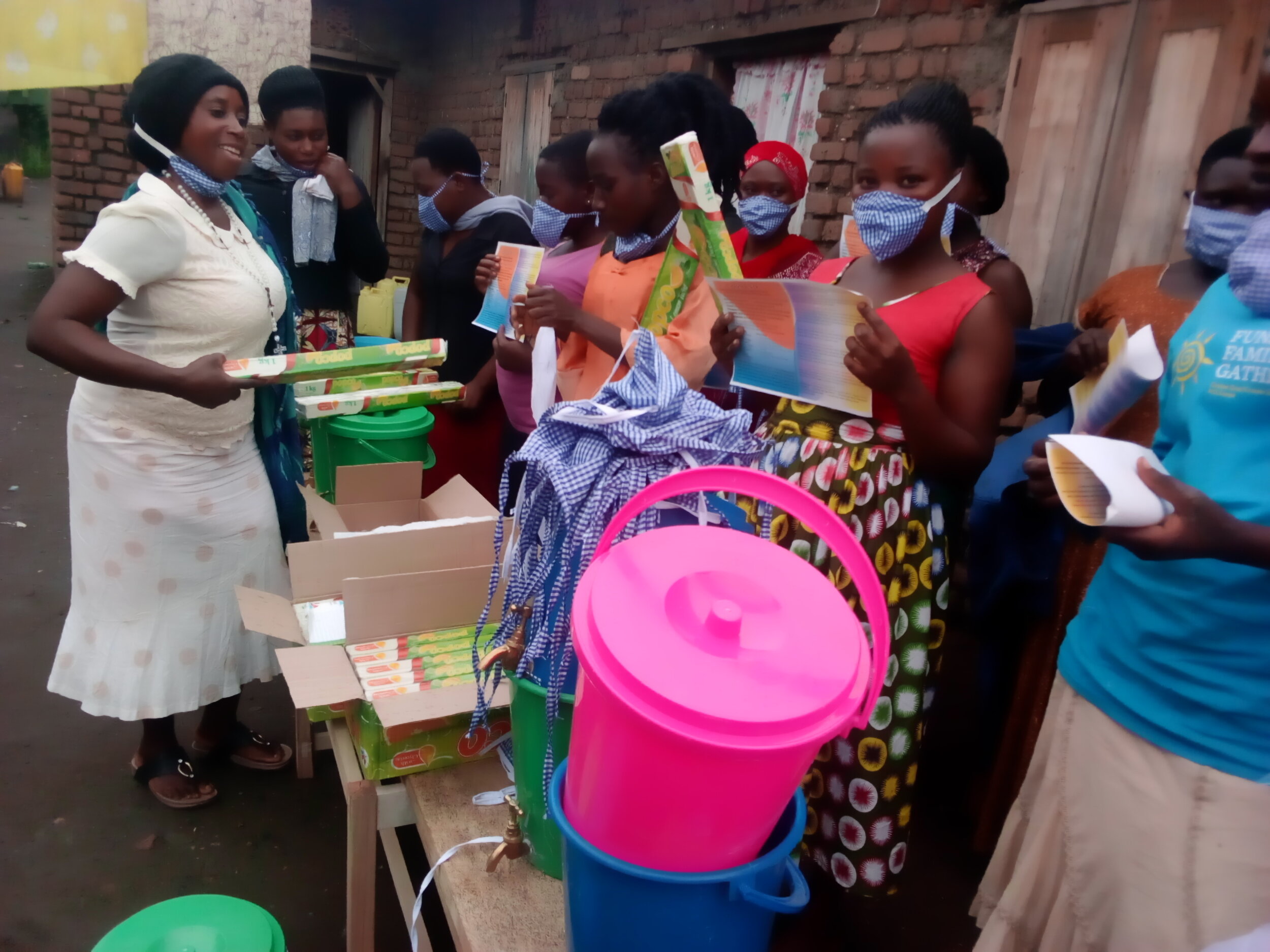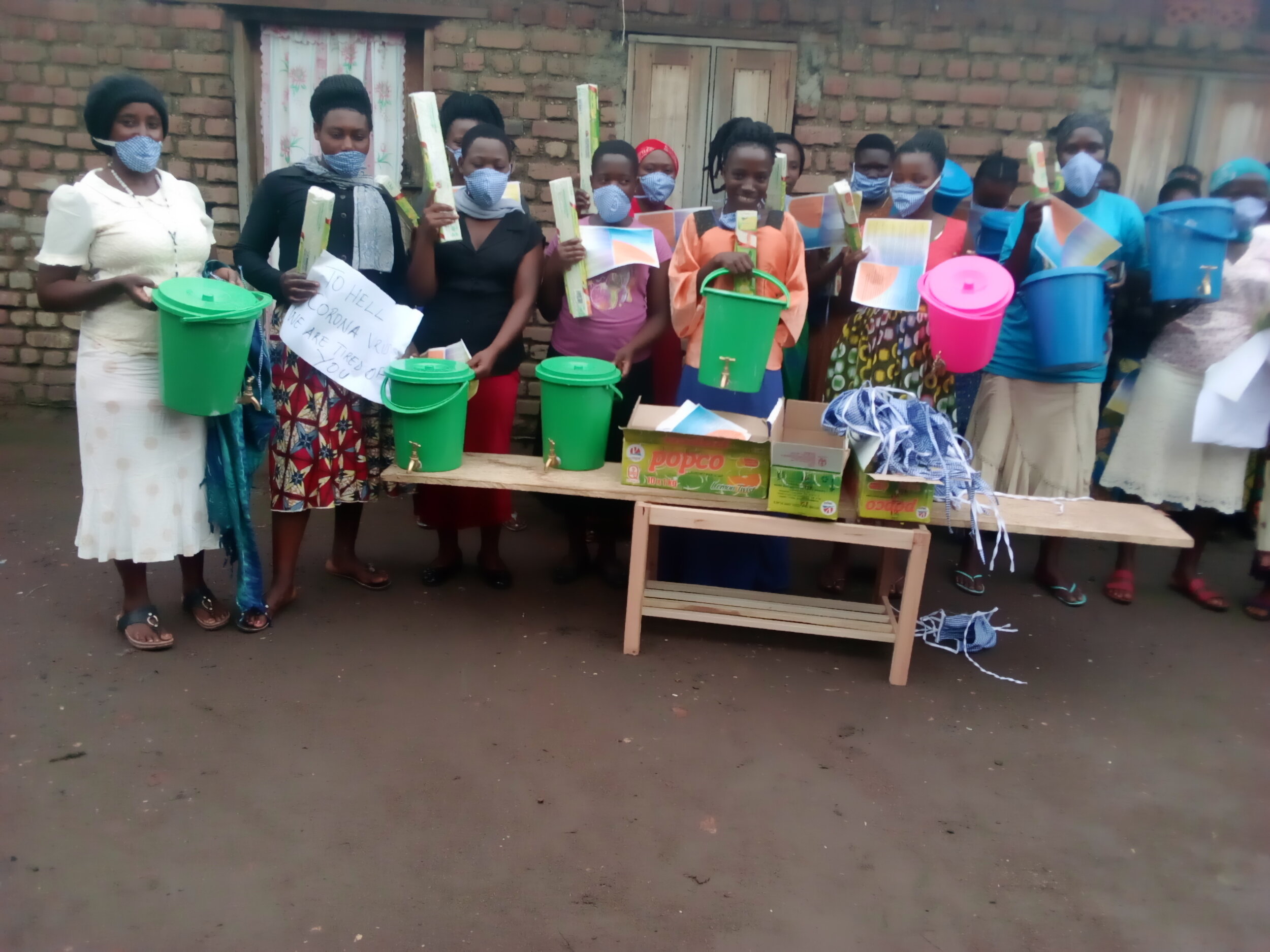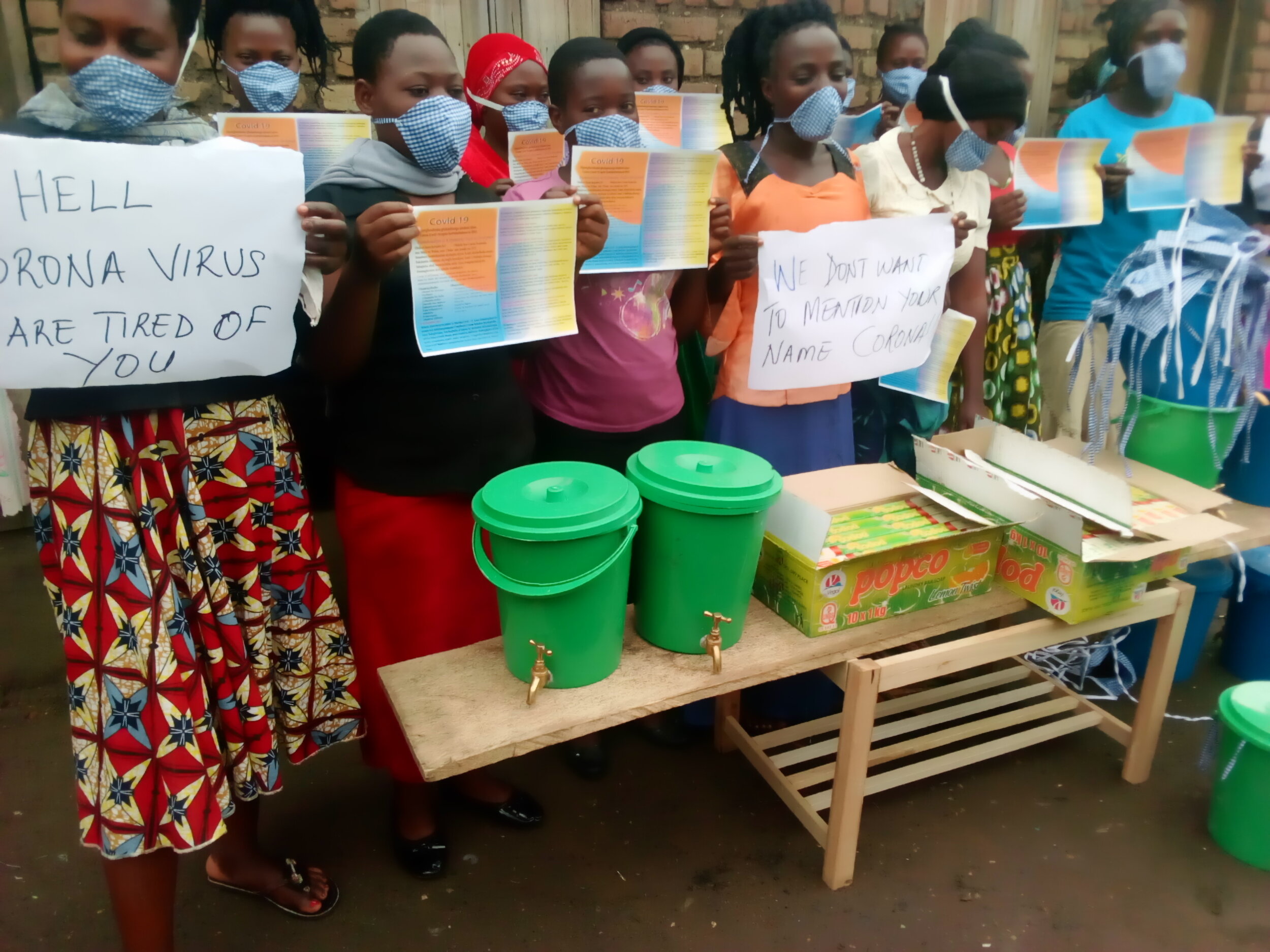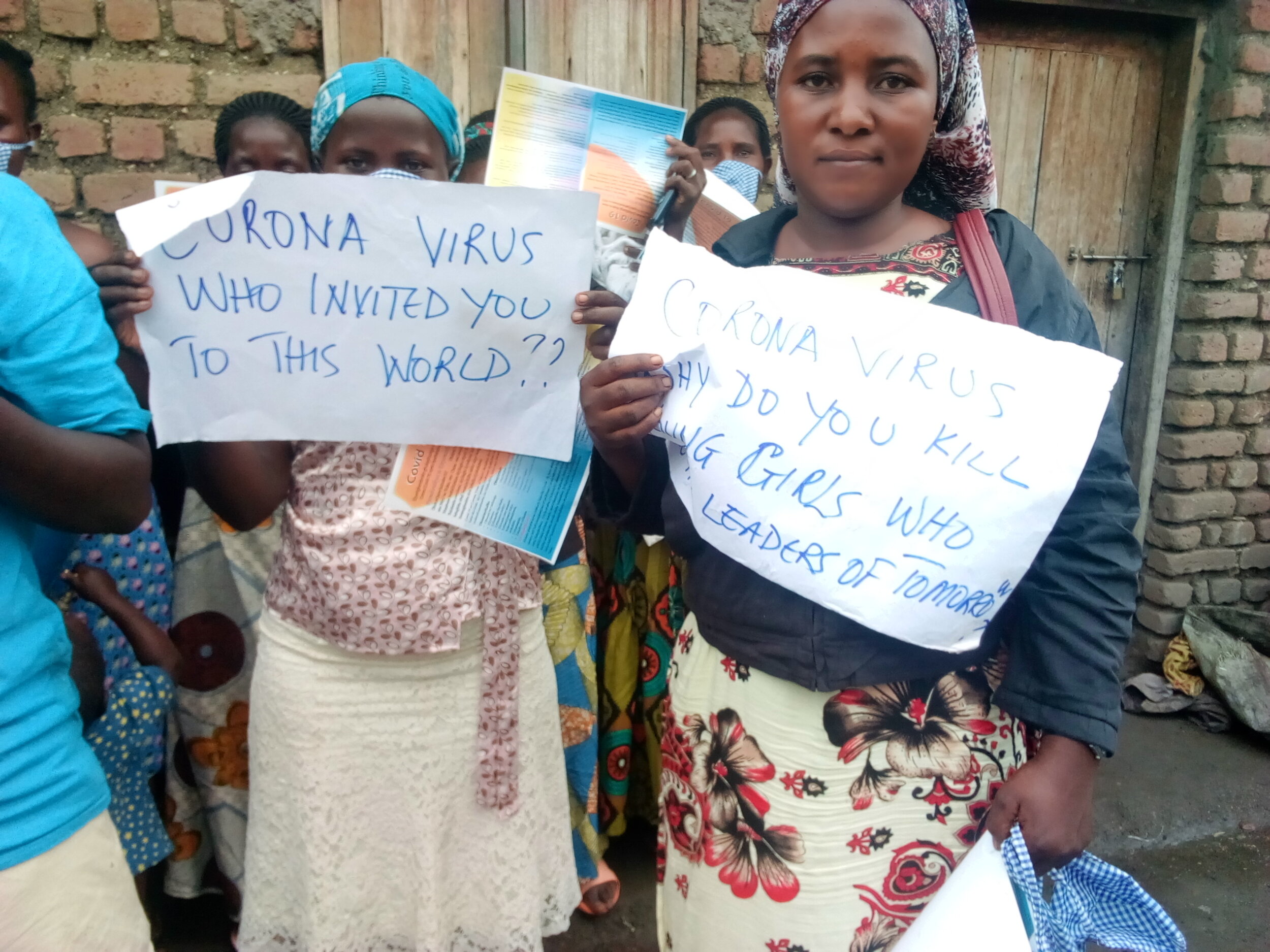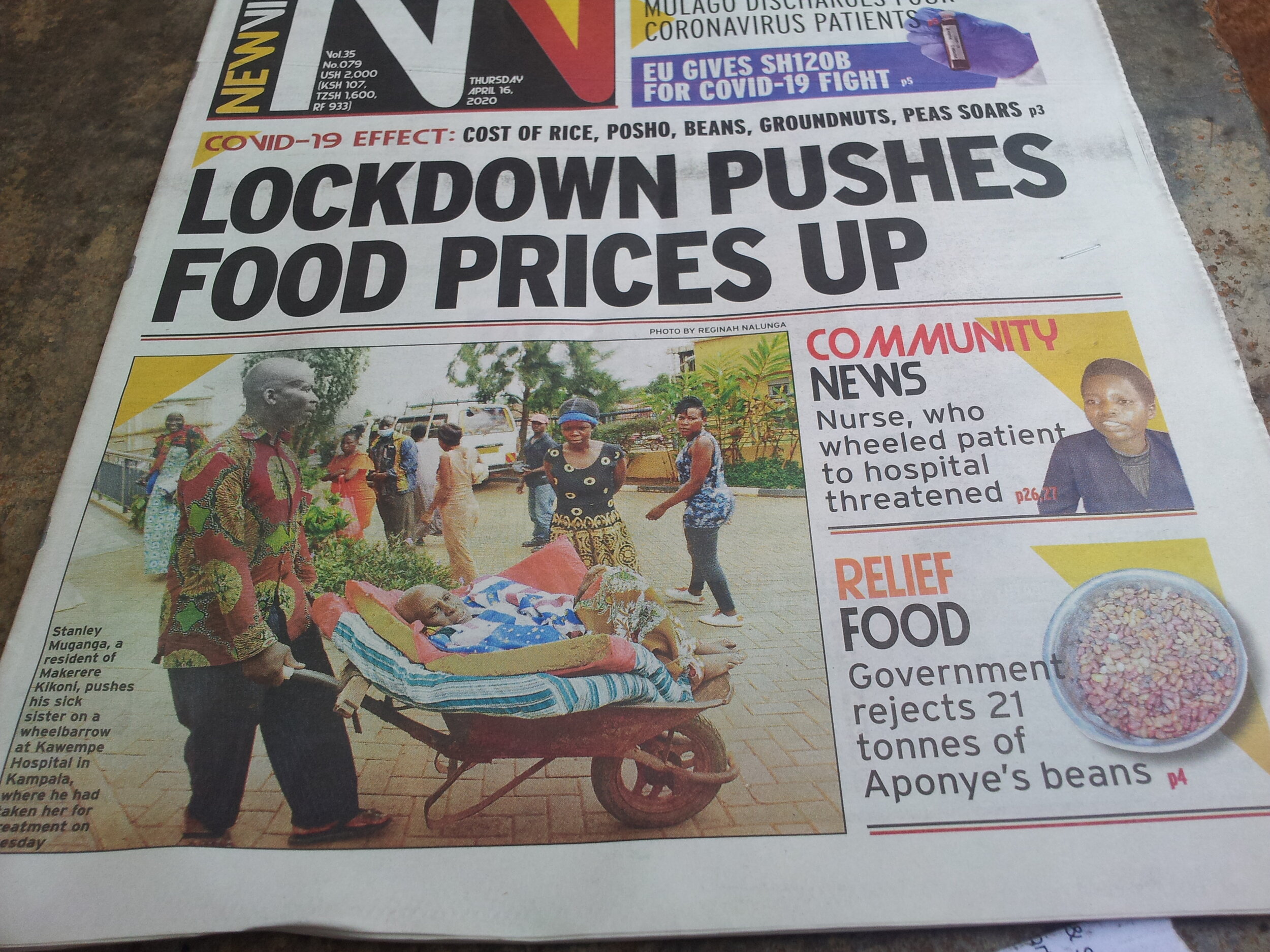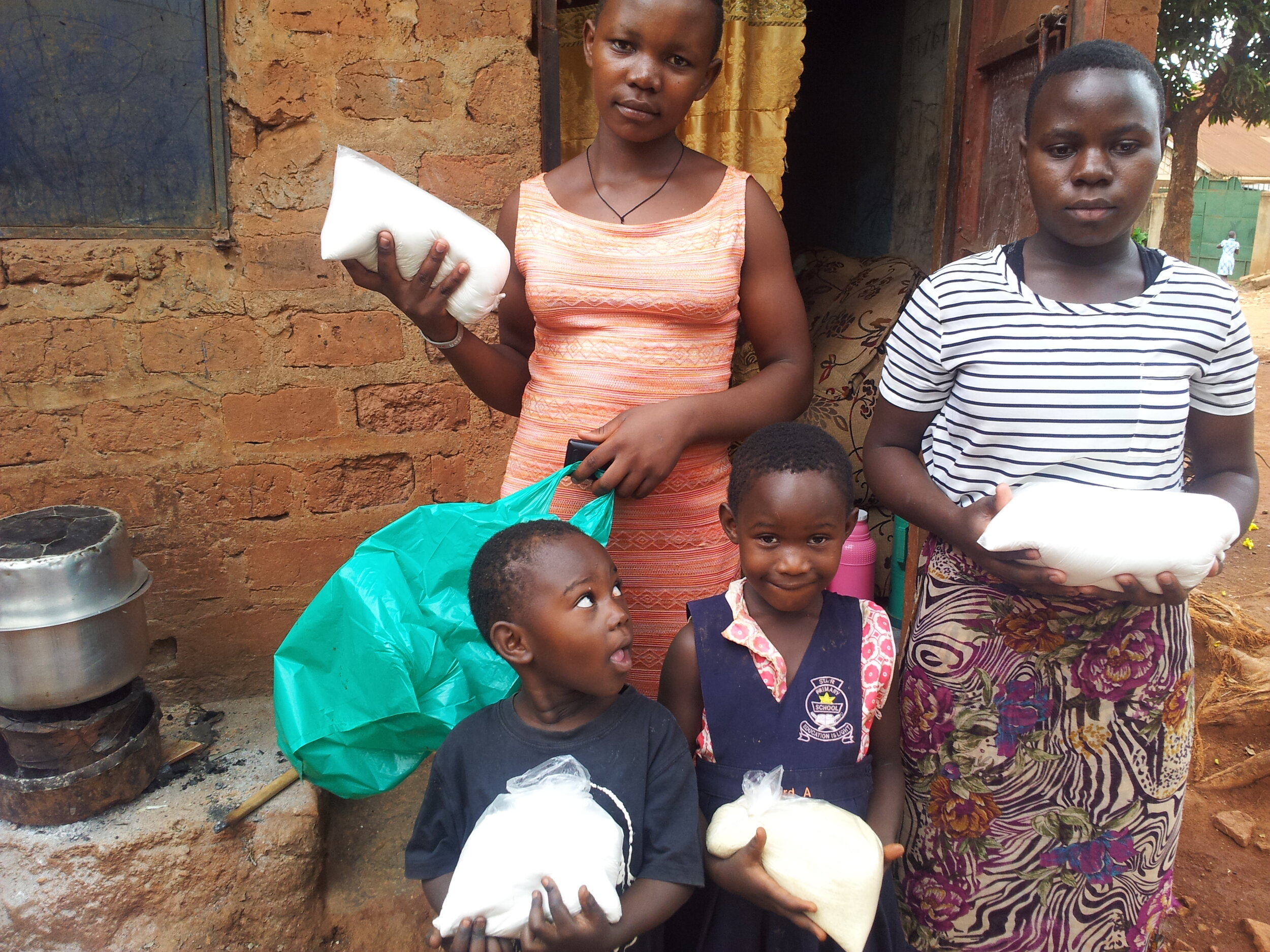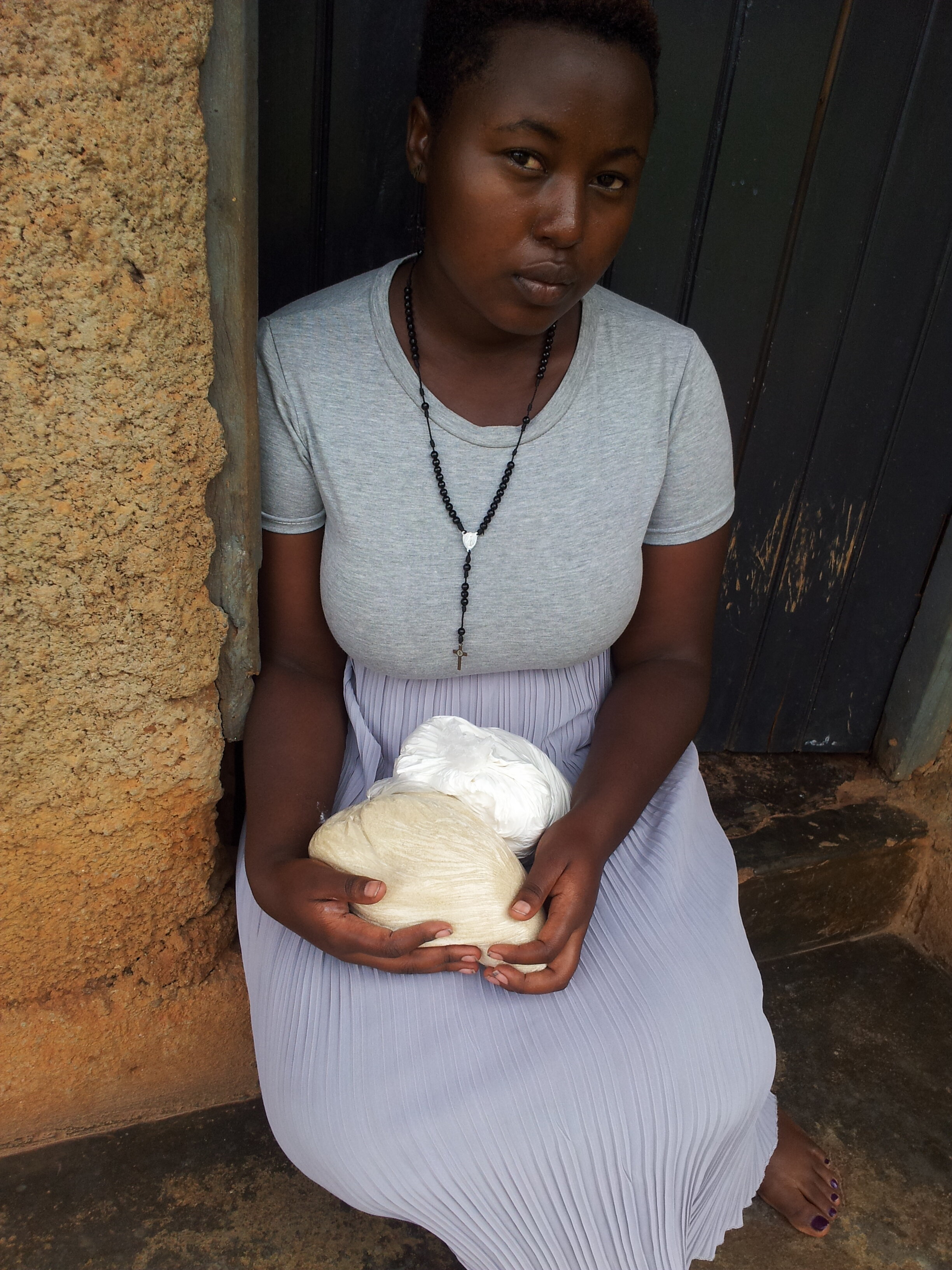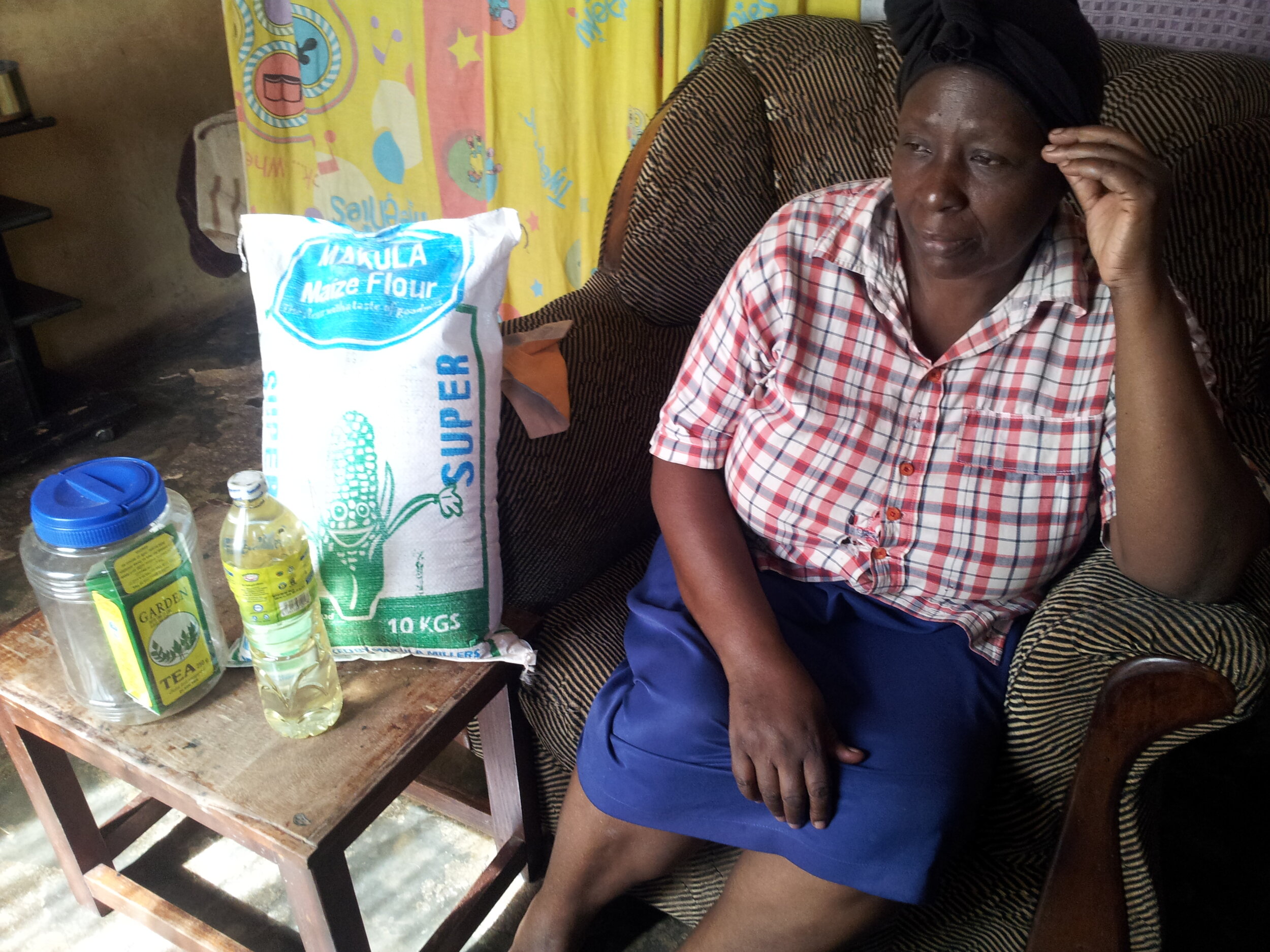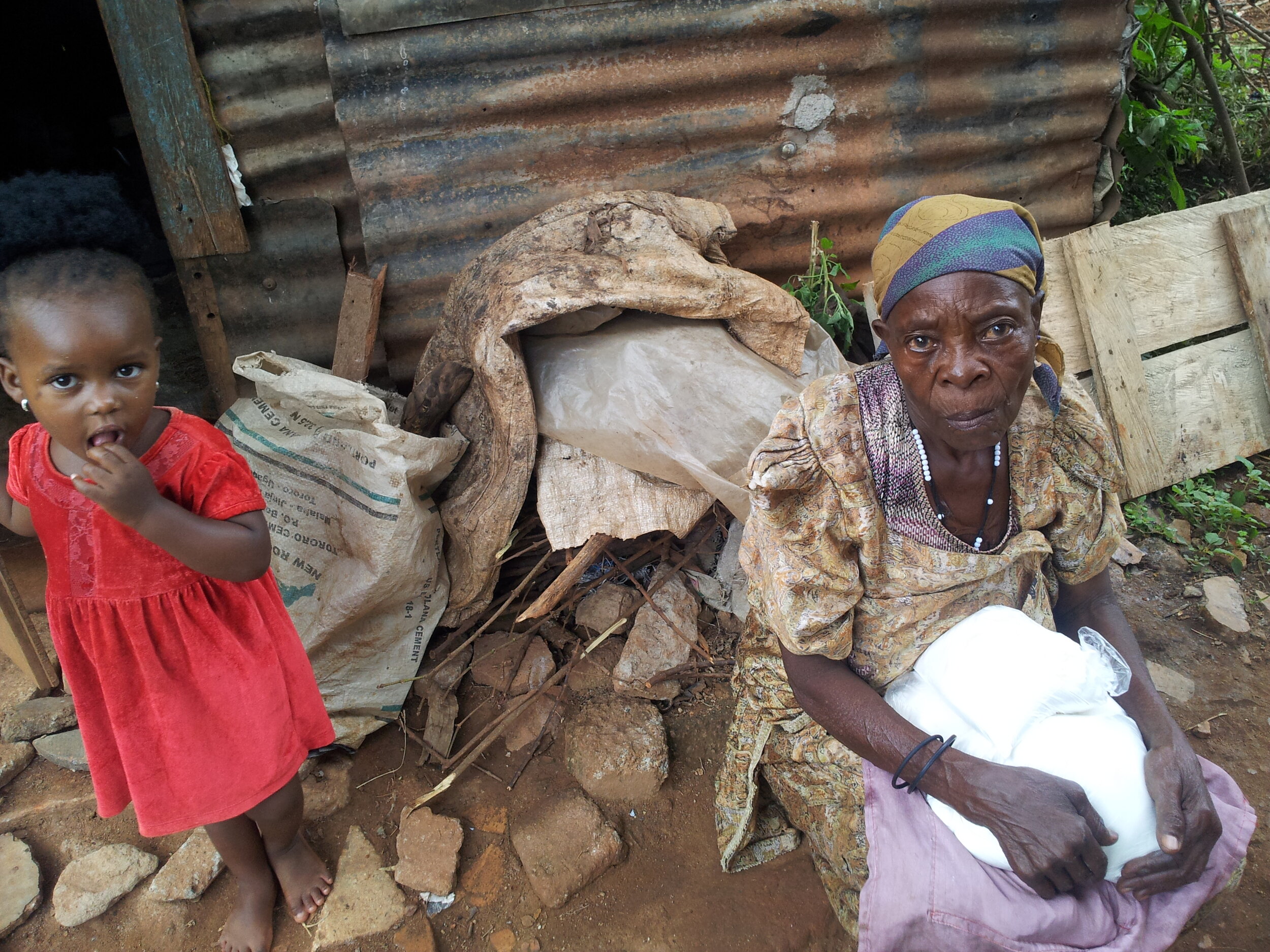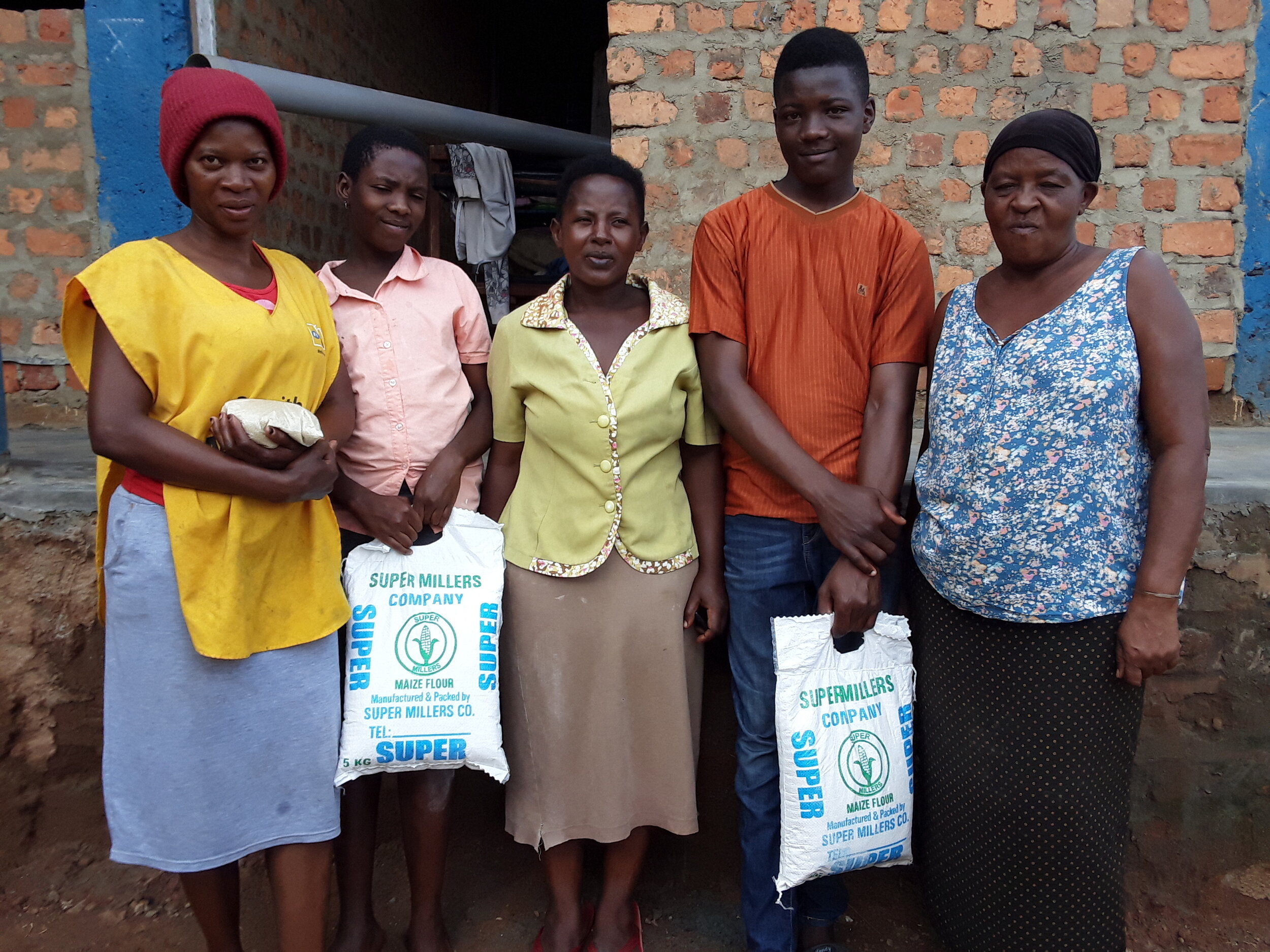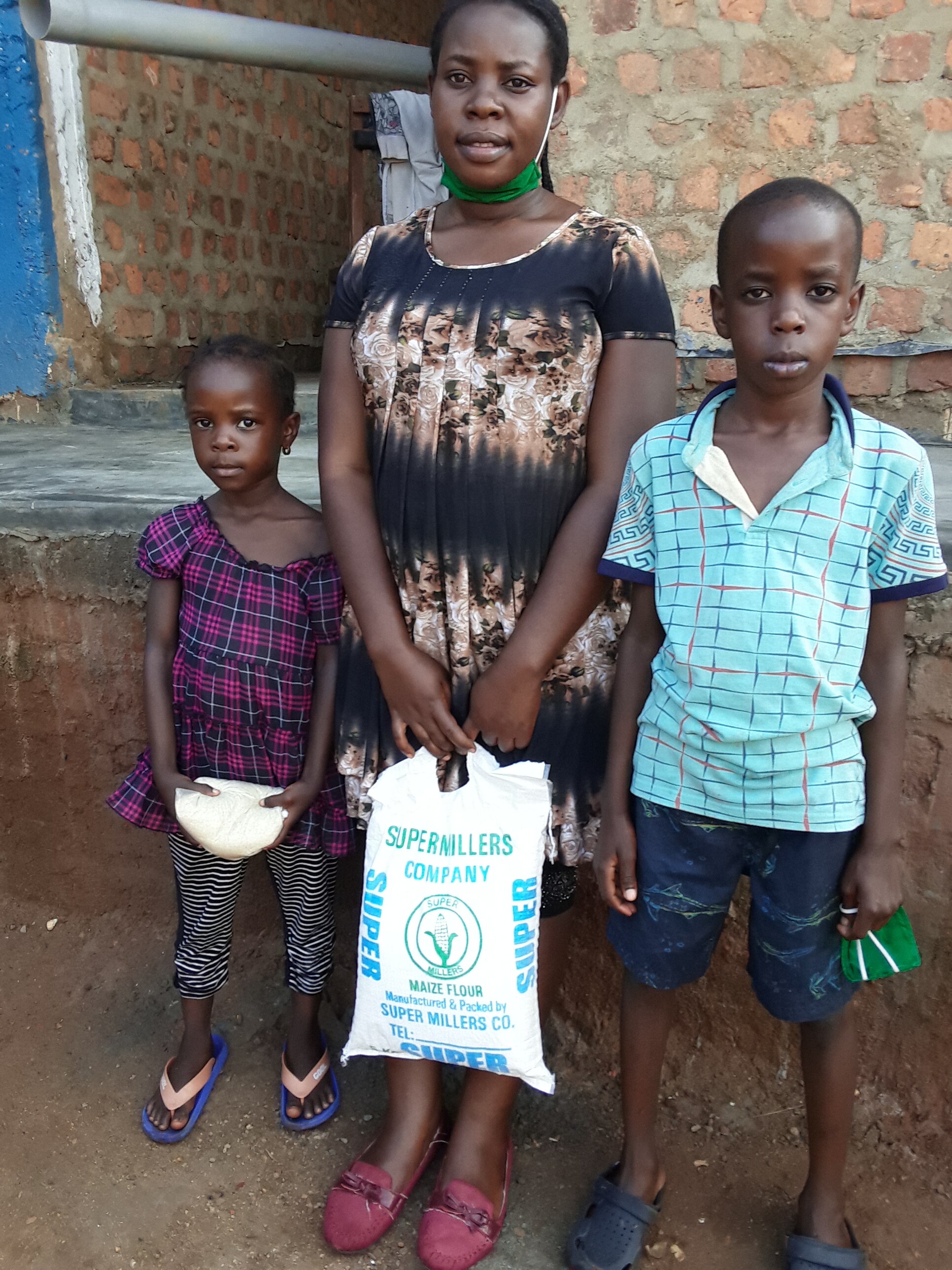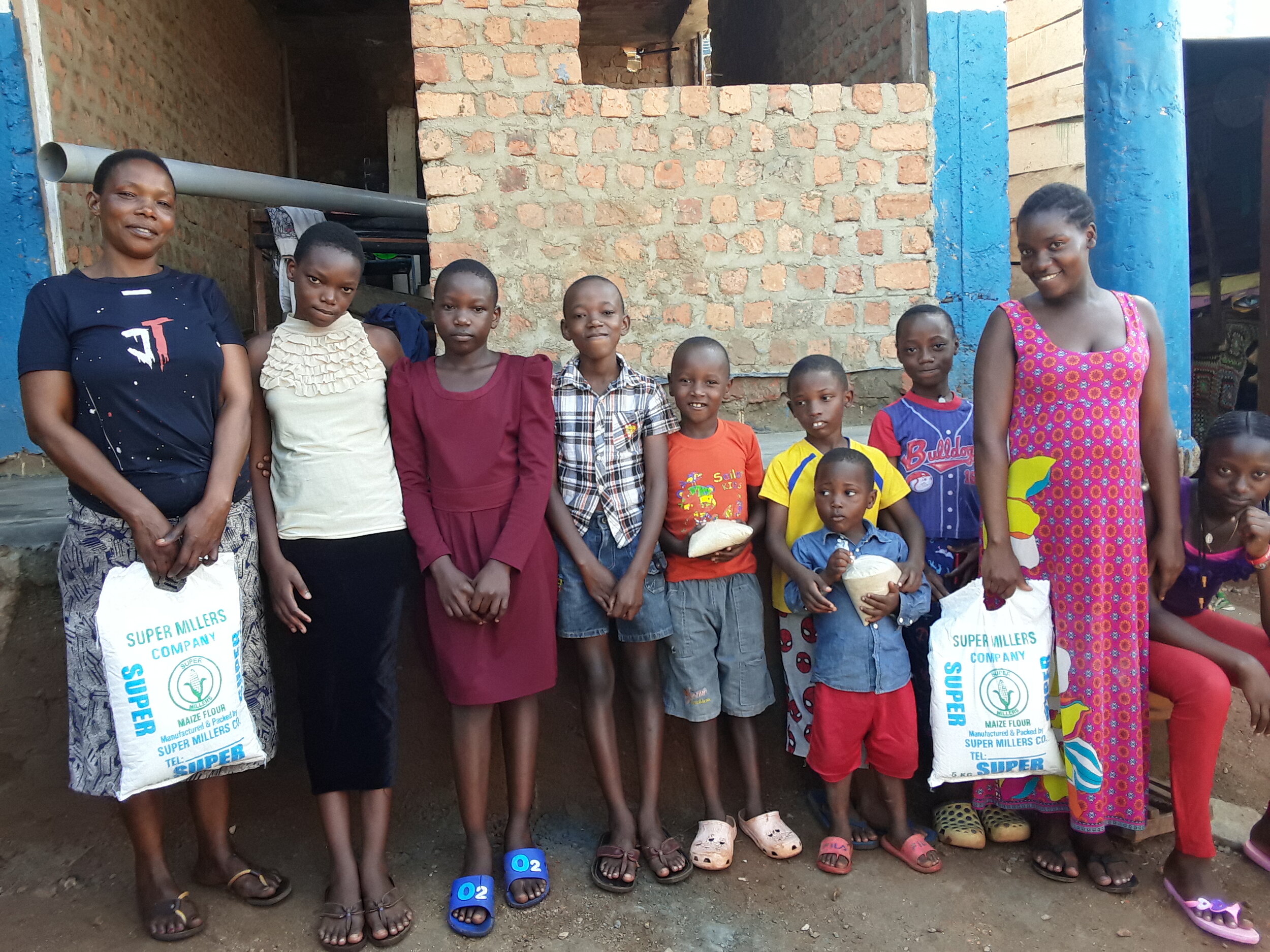Rwenzori United Group for Life Improvement (RUGLI) works to empower women, raise awareness around HIV/AIDS, provide support to disabled, and elderly people and equip vulnerable community members with opportunities to improve their livelihoods. Recently, they provided an update on their project, Weaving Bags for Economic Independence, in which they’re providing training in weaving shoulder bags and entrepreneurial skills to women, including disabled women and young mothers, so that they can support themselves and their families.
The organization identified weaving shoulder bags as an in-demand skill that they could train large groups of women to do in order to start their own businesses. Many women in the area have been unable to support their basic needs, and have come to RUGLI for help. In response they’ve employed a number of community based trainers who have been teaching bag weaving skills and will continue to check in on the participants afterward.
This project is ongoing, and will be shaped largely by the goals and needs of the participants. Since all trainers and participants live relatively close to each other, they will continue to weave bags together, and can decide if they want to create individual businesses or form a collective. RUGLI shared testimonials from the participants on the impact of the project.
Tusiime Agnes told them, “I have been so honored to be part of this project. My children now have hope that after selling our initial products our lives changed completely. I am a mother of 5 children and the man died of HIV/AIDS in 2014 and ever since then we have suffered. We only ate once a day, my children lacked even clothes to wear. The skills I have learned and the startup capital provided to me have really helped me a lot. Thanks, RUGLI for always helping me whenever I am in need, may God continue to bless the work of your hands. Moreso, I have started a small business shop which has increased income inflows into my family and I have also put my children back in school.”
Another participant, Nyamwiza Venacia, explained, “I lost my dignity and honor when I was a 16 years old when I was raped and got infected with HIV/AIDS. This gave me the honor of being a mother but I never had any employment that could help me look after my child. I was dragged into prostitution so as to be able to provide the best I could for my child who never had a father. I have been a prostitute for 5 years now and I regret the day I began practicing it but I never had a way out. When RUGLI offered help I was really so grateful and positive about it. You have taught me weaving and entrepreneurship skills, provided us with startup capital and I have established my business. Thank you so much for what you have done for me, with this I believe people will have some respect for me as I will be able to provide basic needs for my child doing a decent job.”
Kabugho Moreen said, “I cannot express my happiness of what RUGLI has done for me, I am a single mother with one child. I dropped out of school when I was in primary four and after 5 years I got pregnant. When I got pregnant my parents chased me away from home to go to the person who was responsible for the pregnancy, life became so hard because the man also ran away. I have been struggling to earn income to support me and my child for the last 10 years, tried looking for jobs but life here is so hard, of lately (four months back) I was fired from the job where I was working as a maid and they were paying me UGX15,000 ($4.80 USD) per month. But because of this training acquired, I can manage to get that very amount in a day or two. I am able to get relevant needs for my child and I hope to get more. Thank you so much RUGLI and Rockflower for the support extended to us. We are grateful that you have changed our lives as women mothers.”
It’s astounding to see how education in just one skill can change the lives of entire families. The majority of these women did not have the opportunity to complete a formal education and have had no access to career training. With RUGLI’s support and belief in the power of education, they have been able to uplift and provide economic stability to these determined women.


